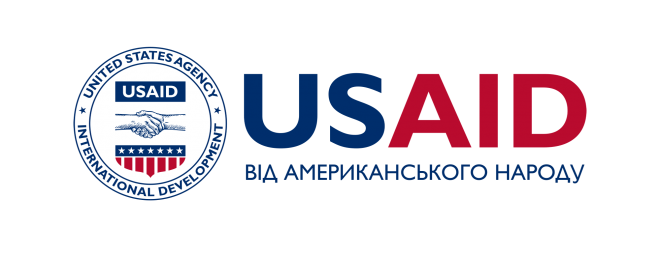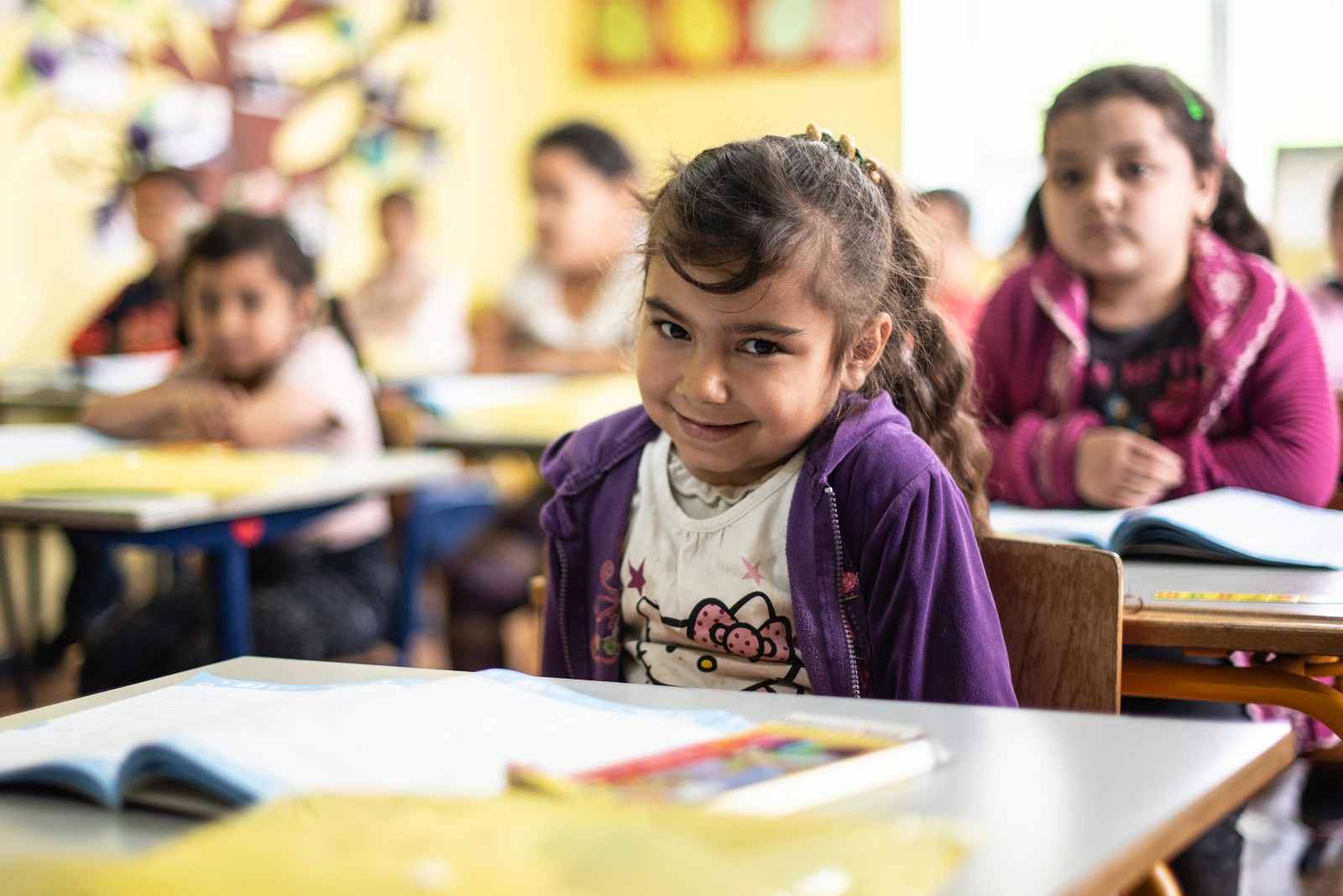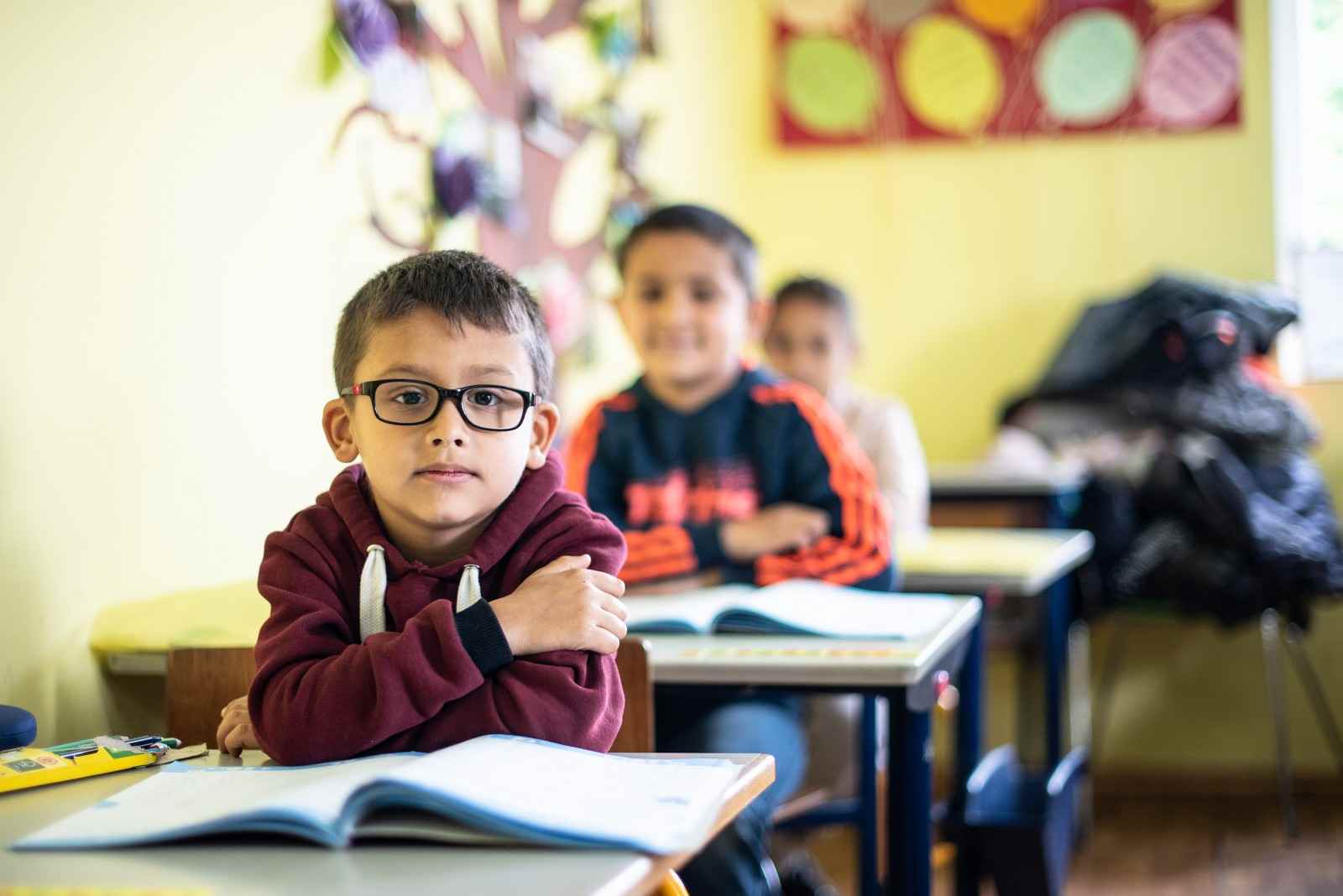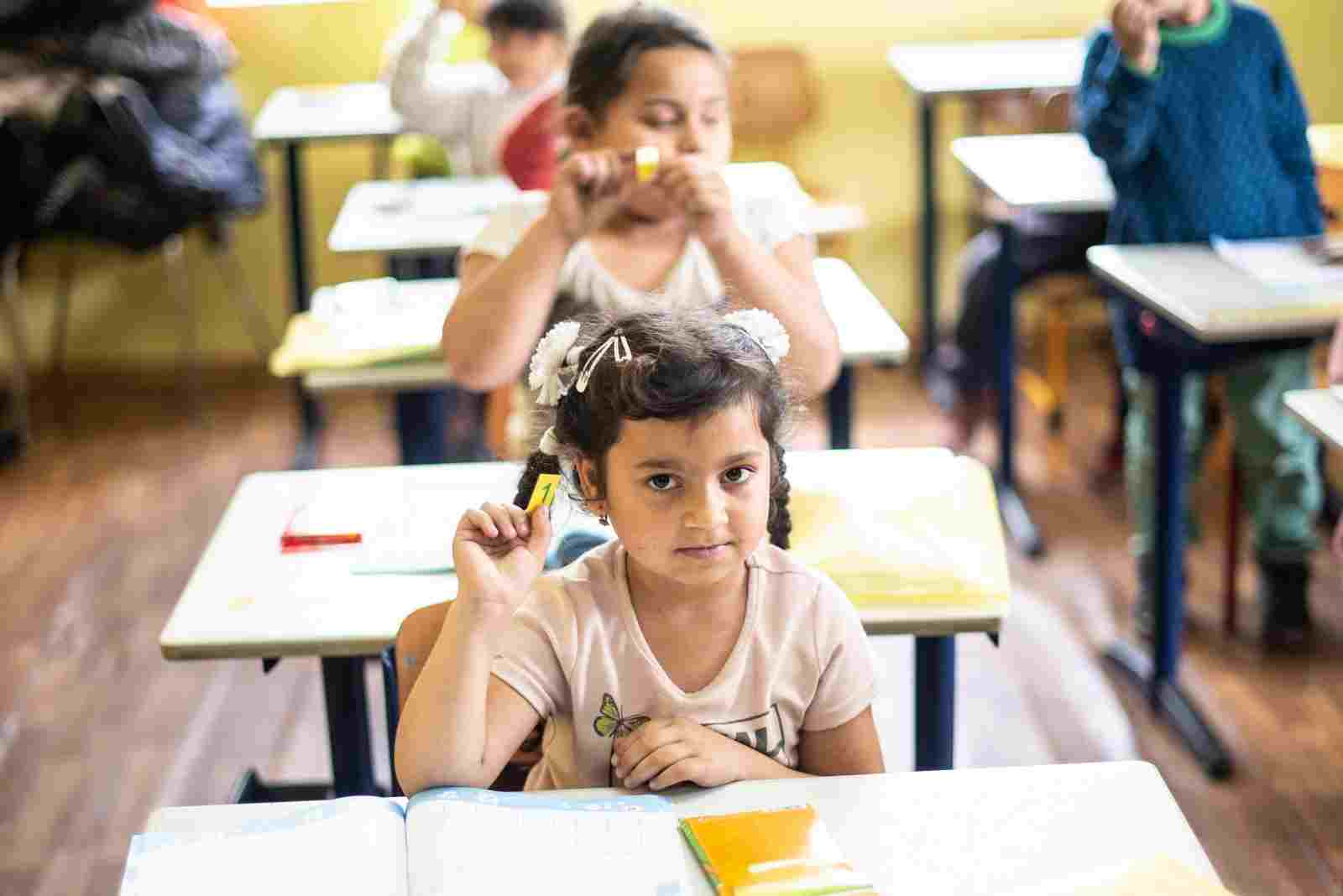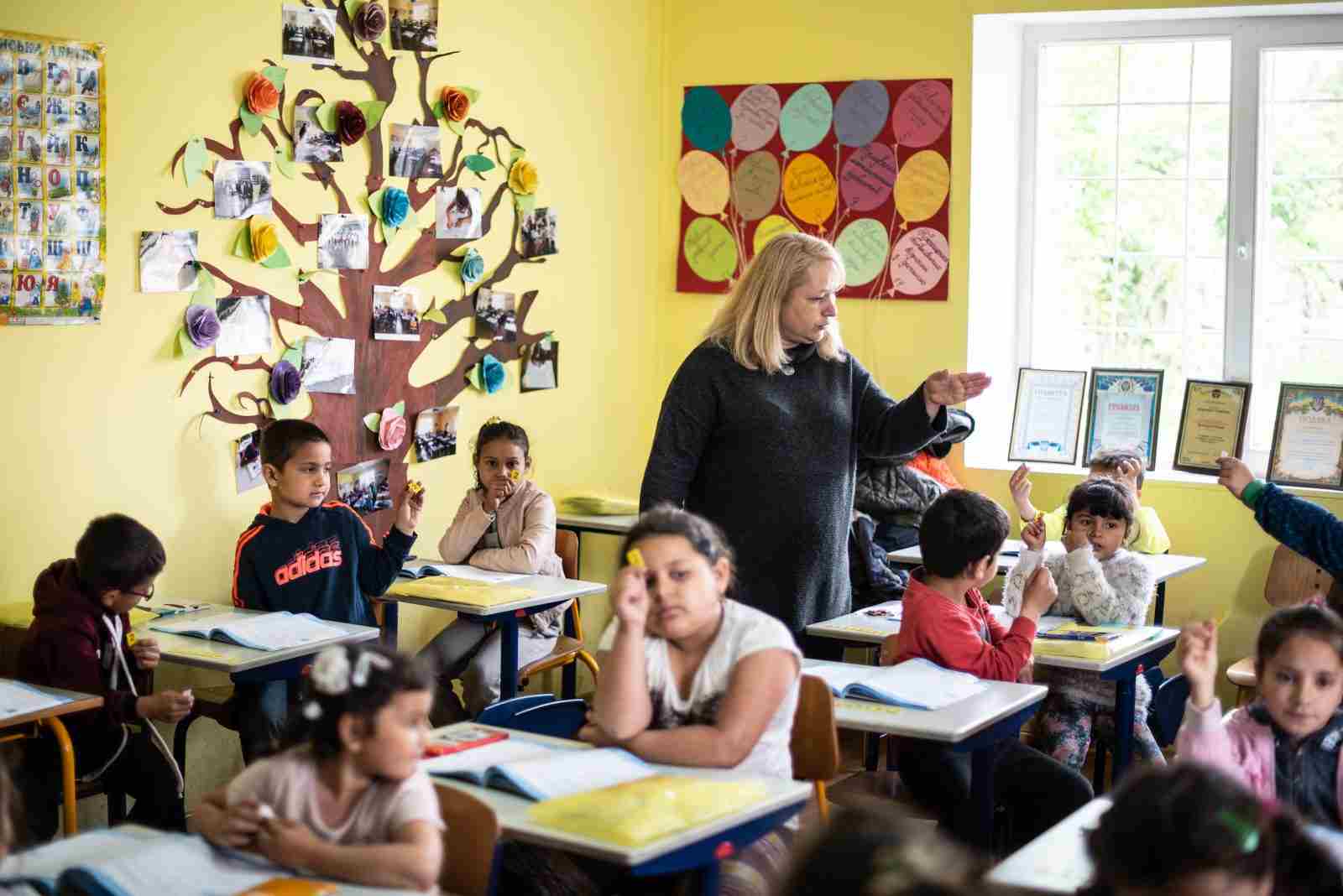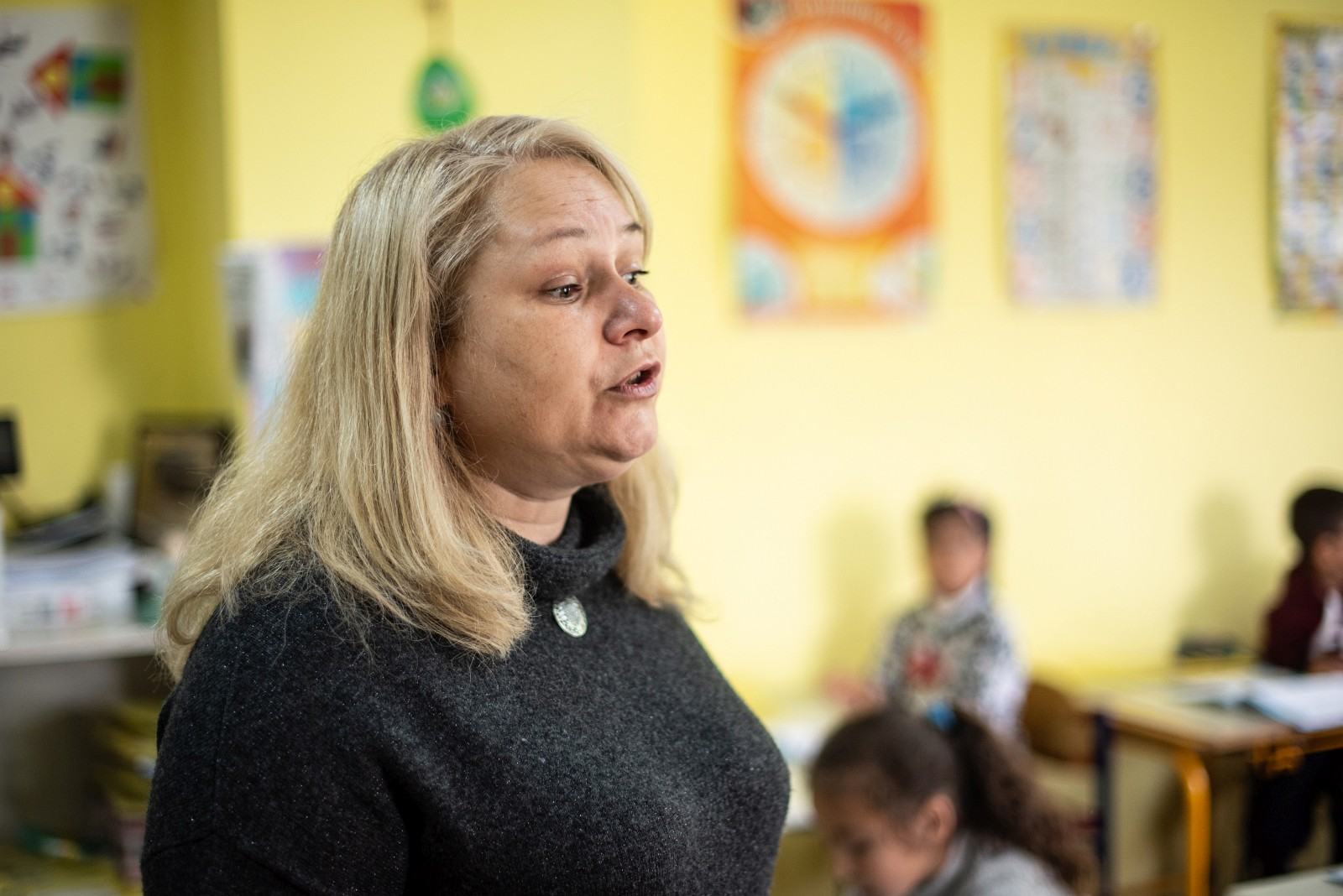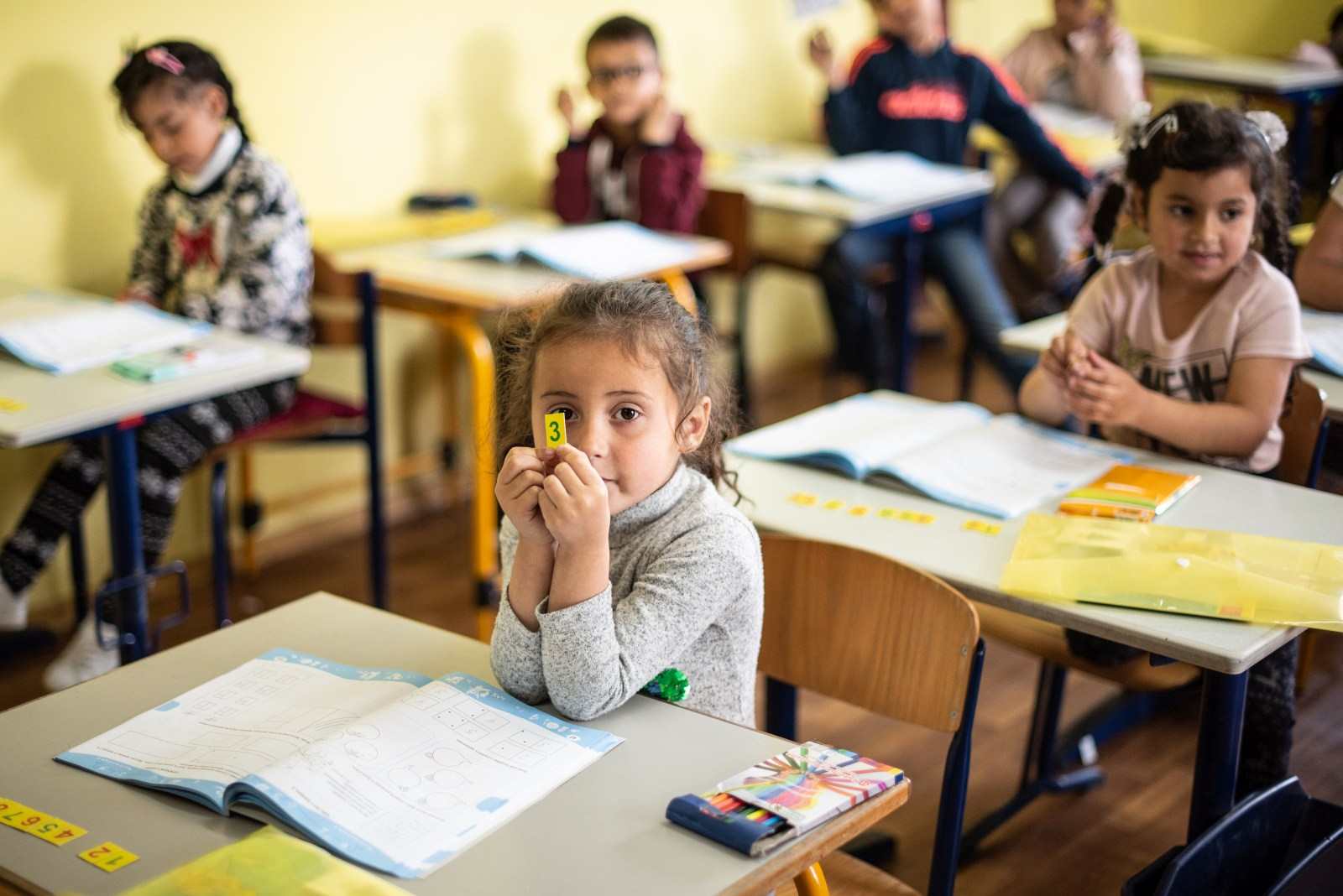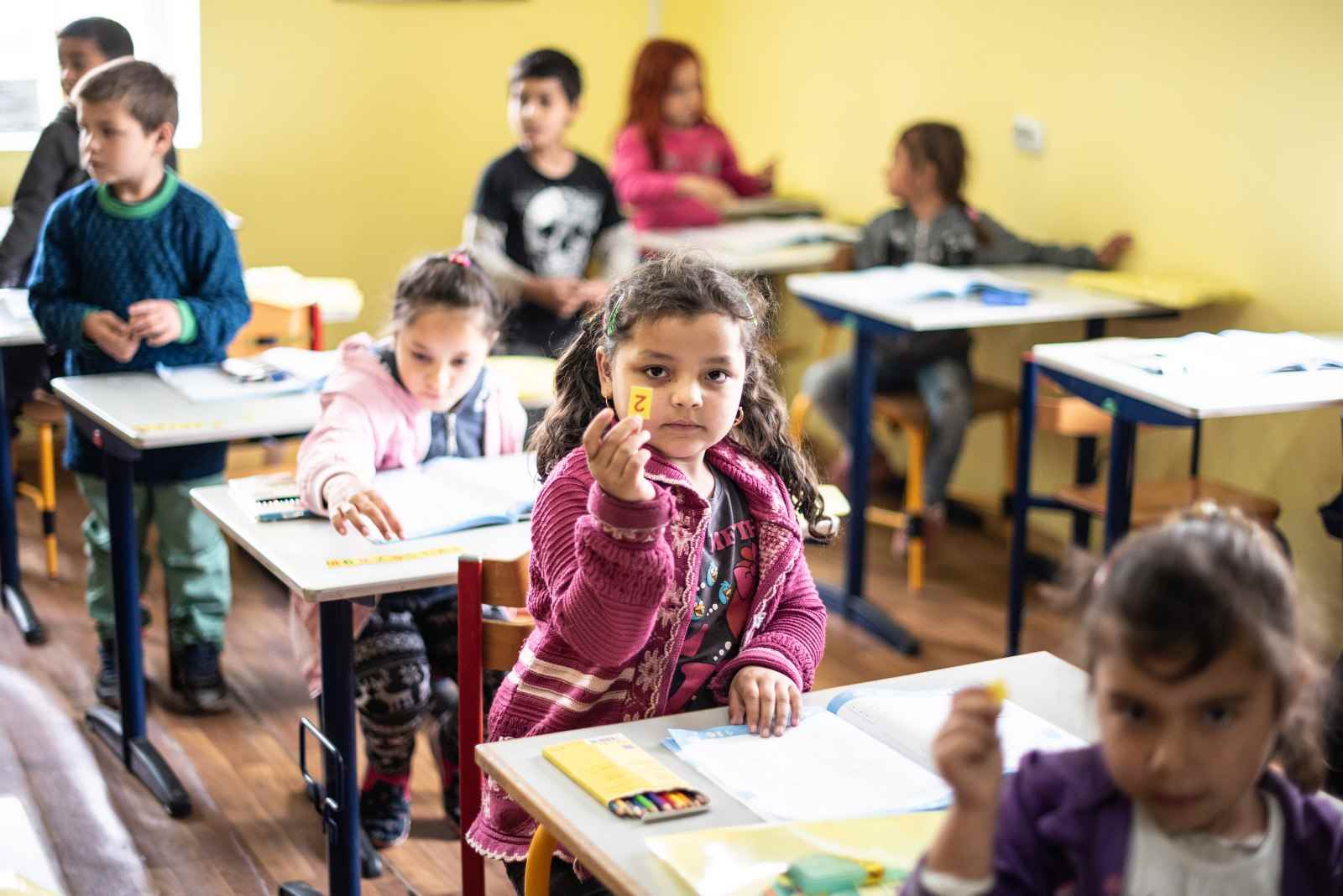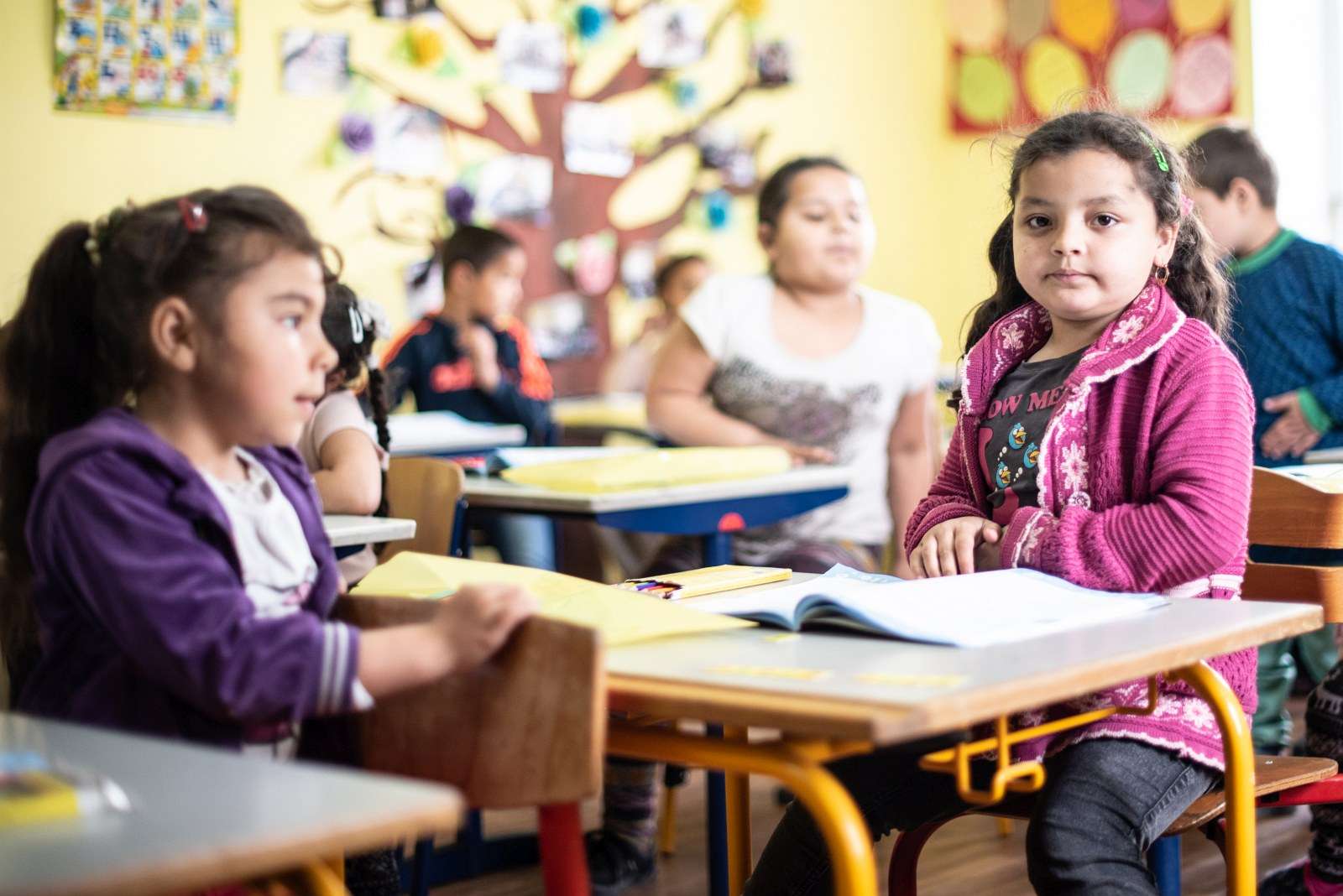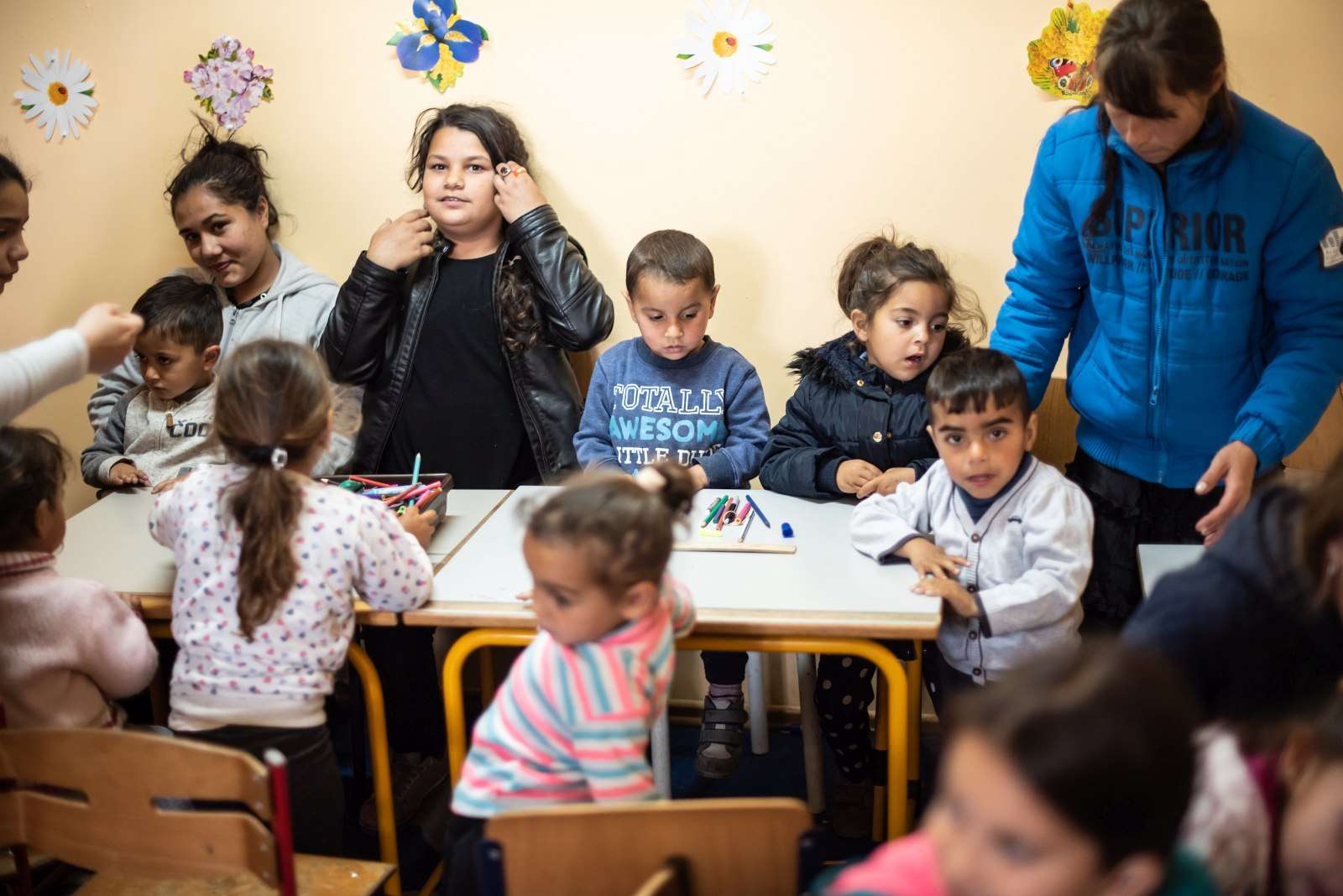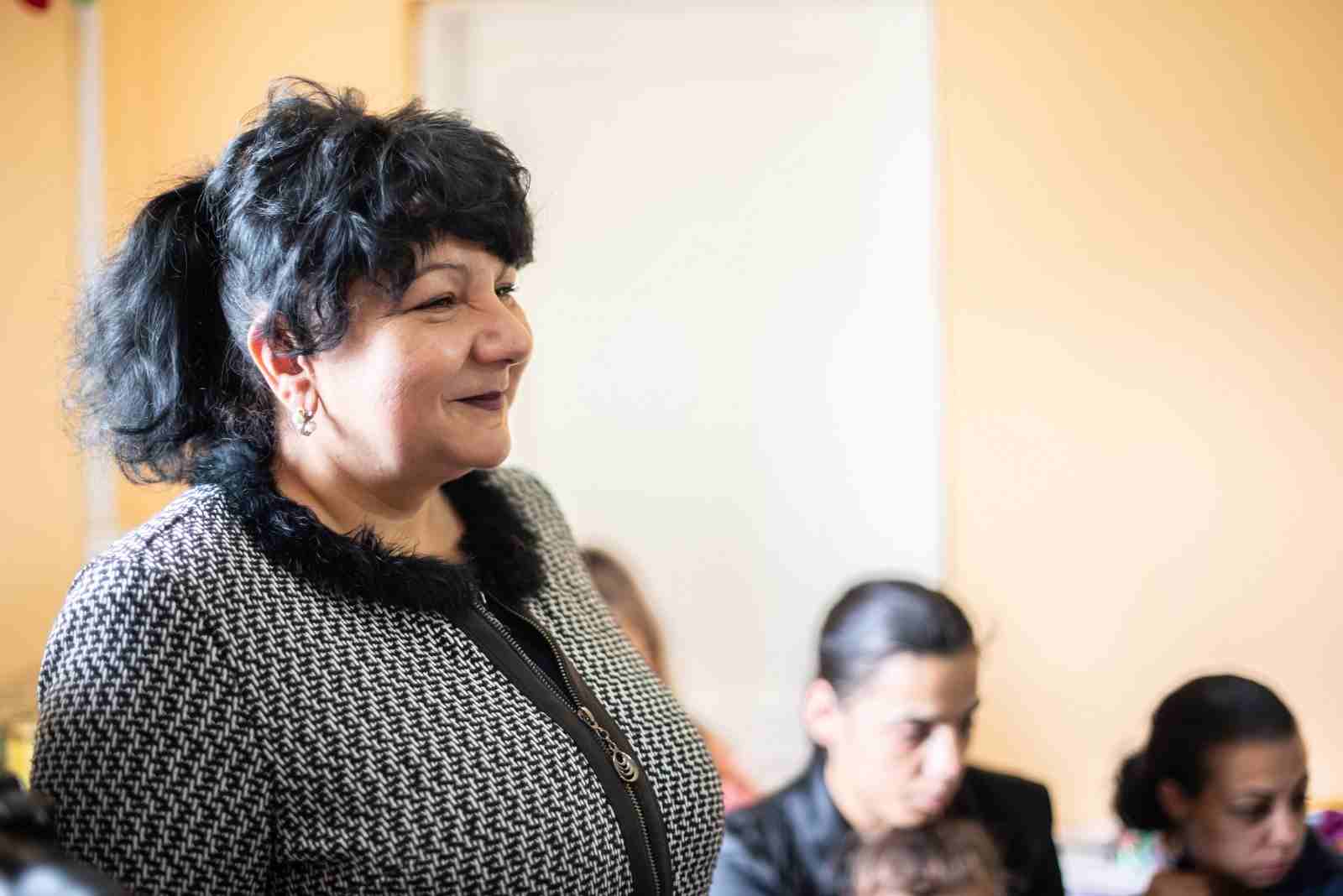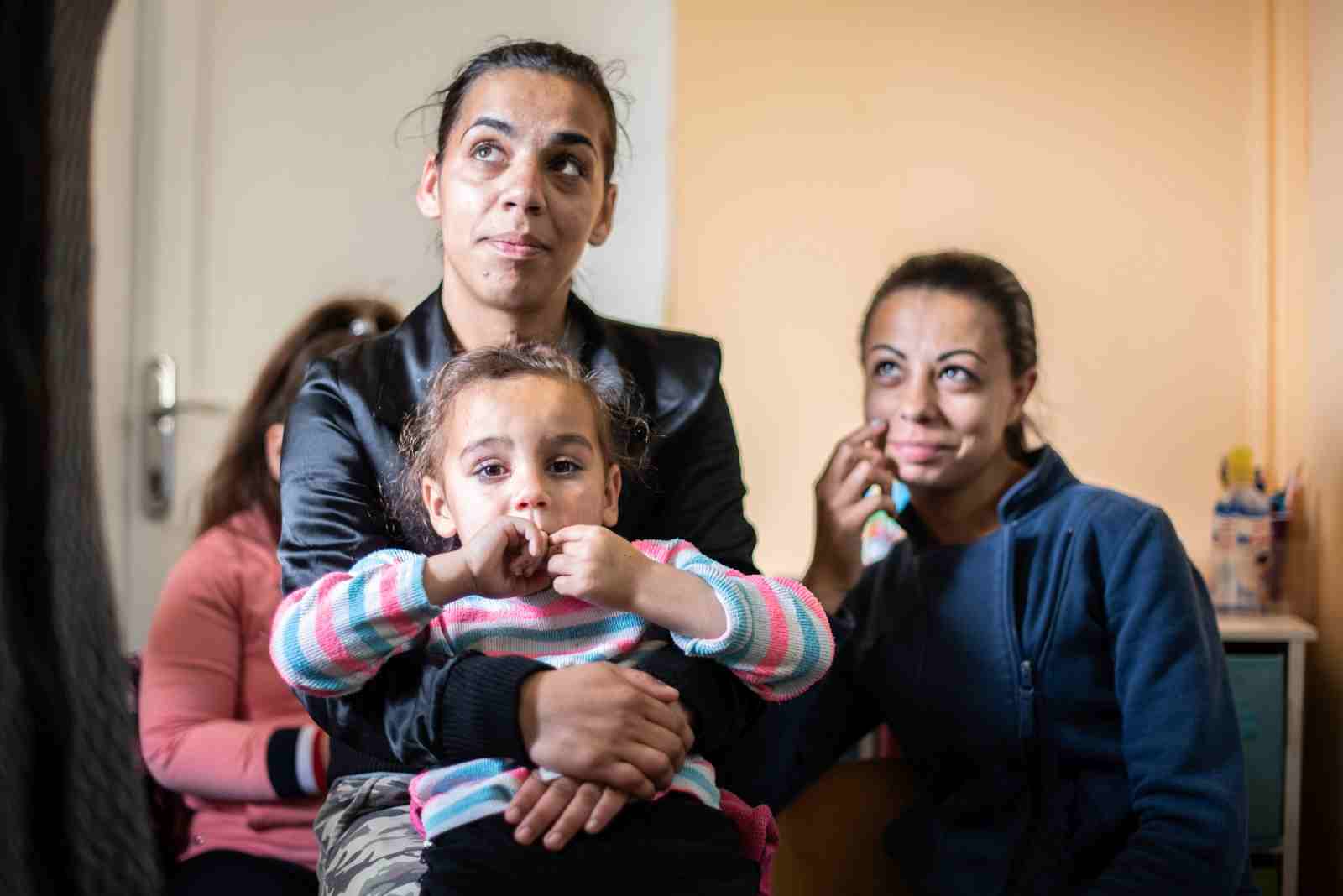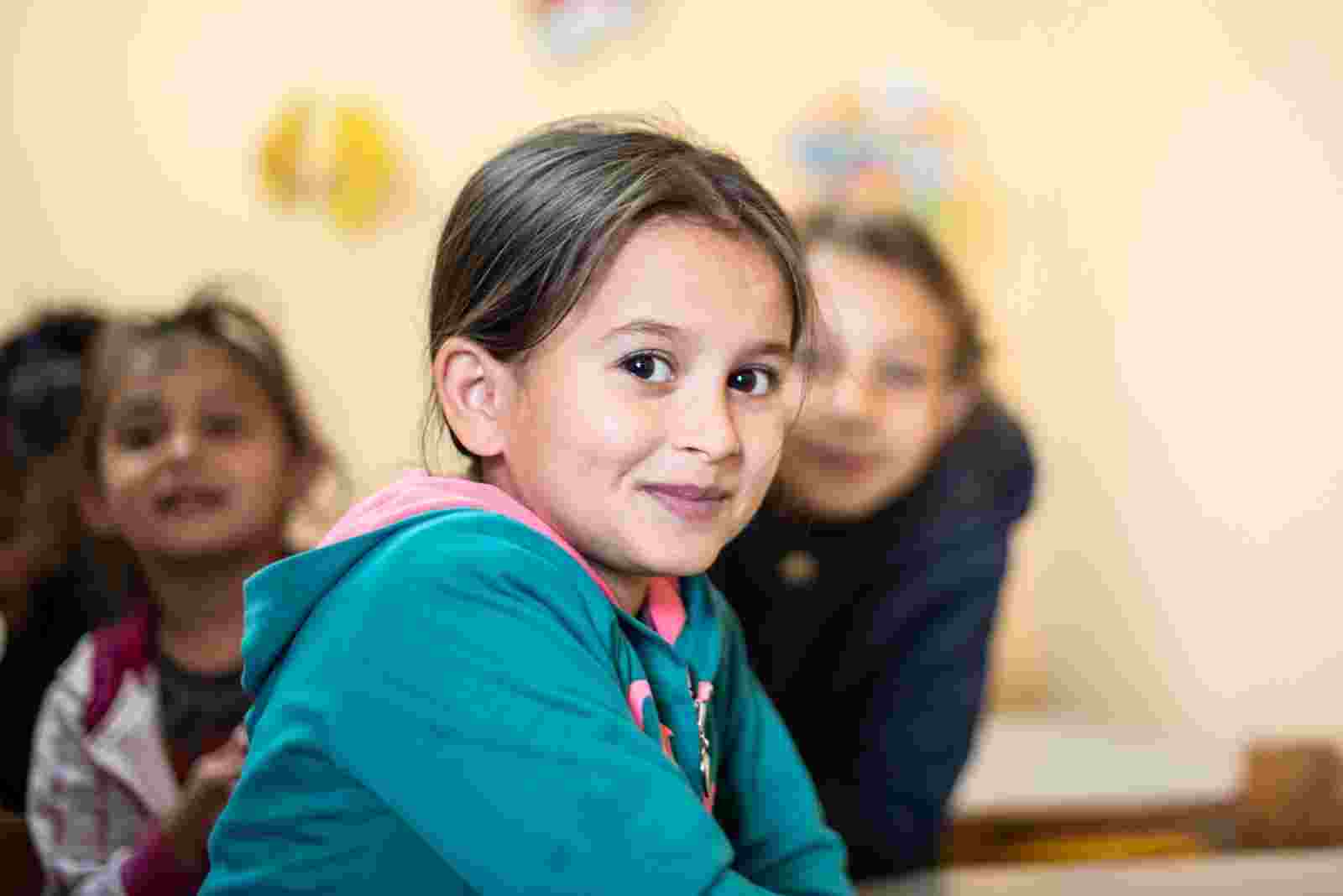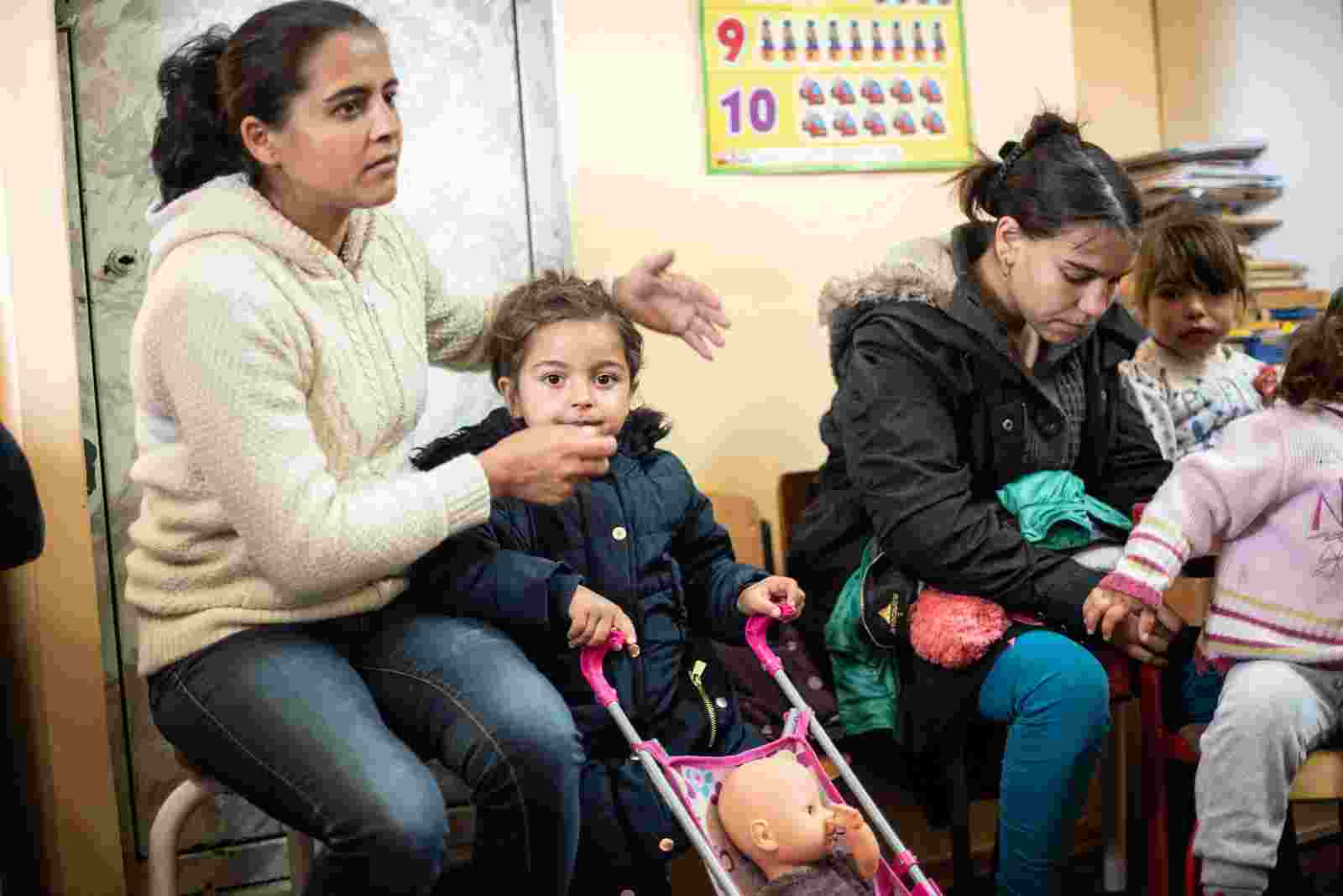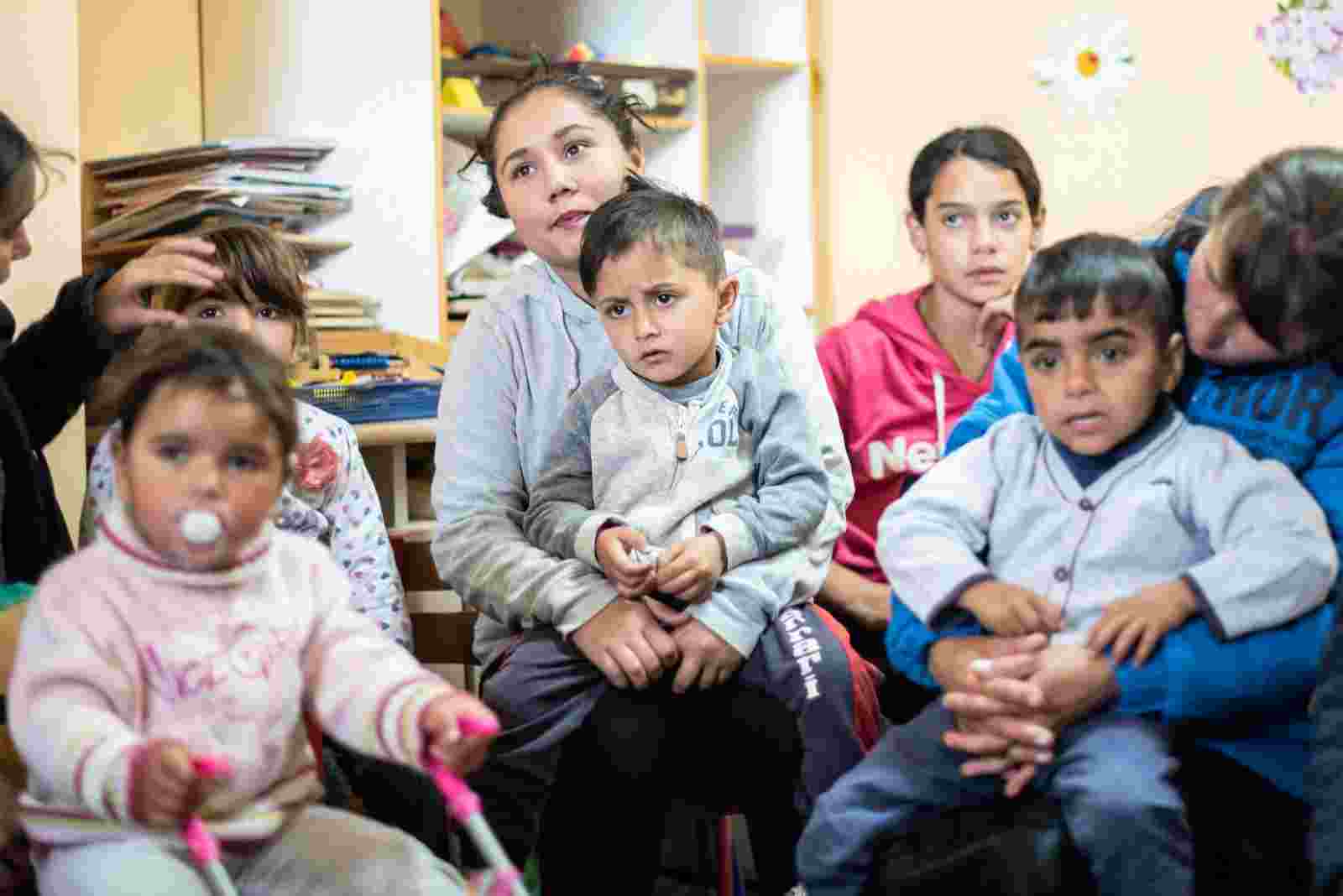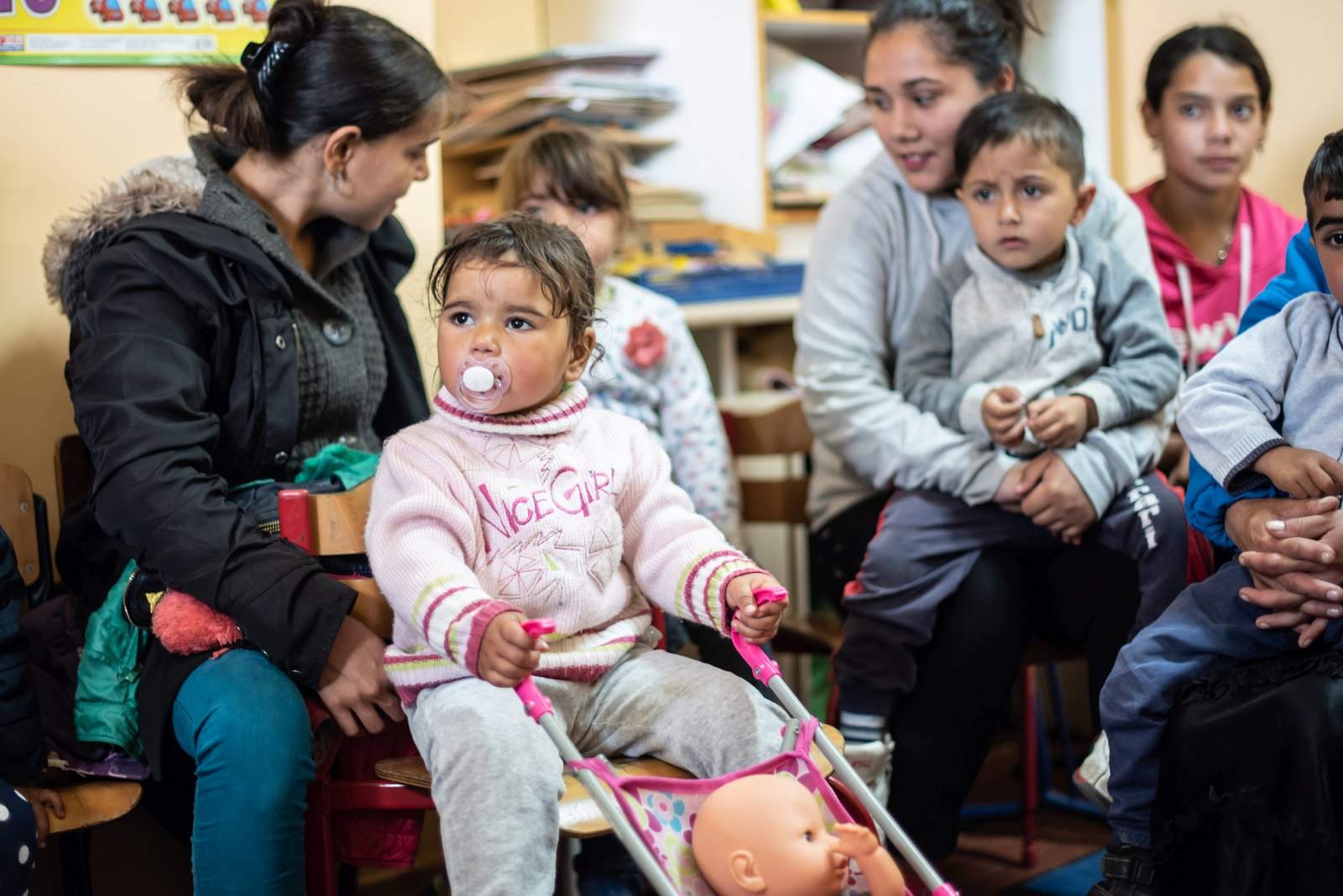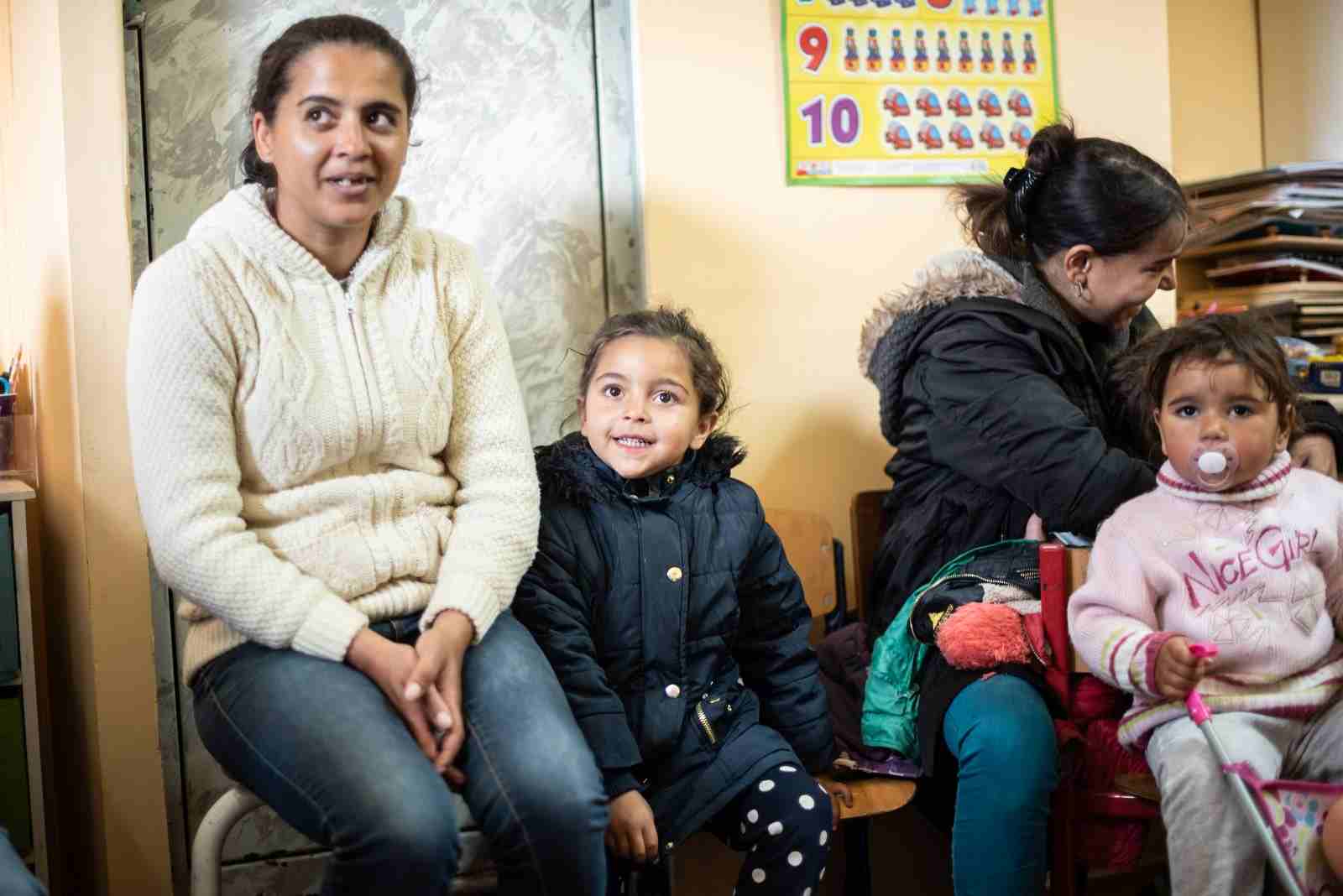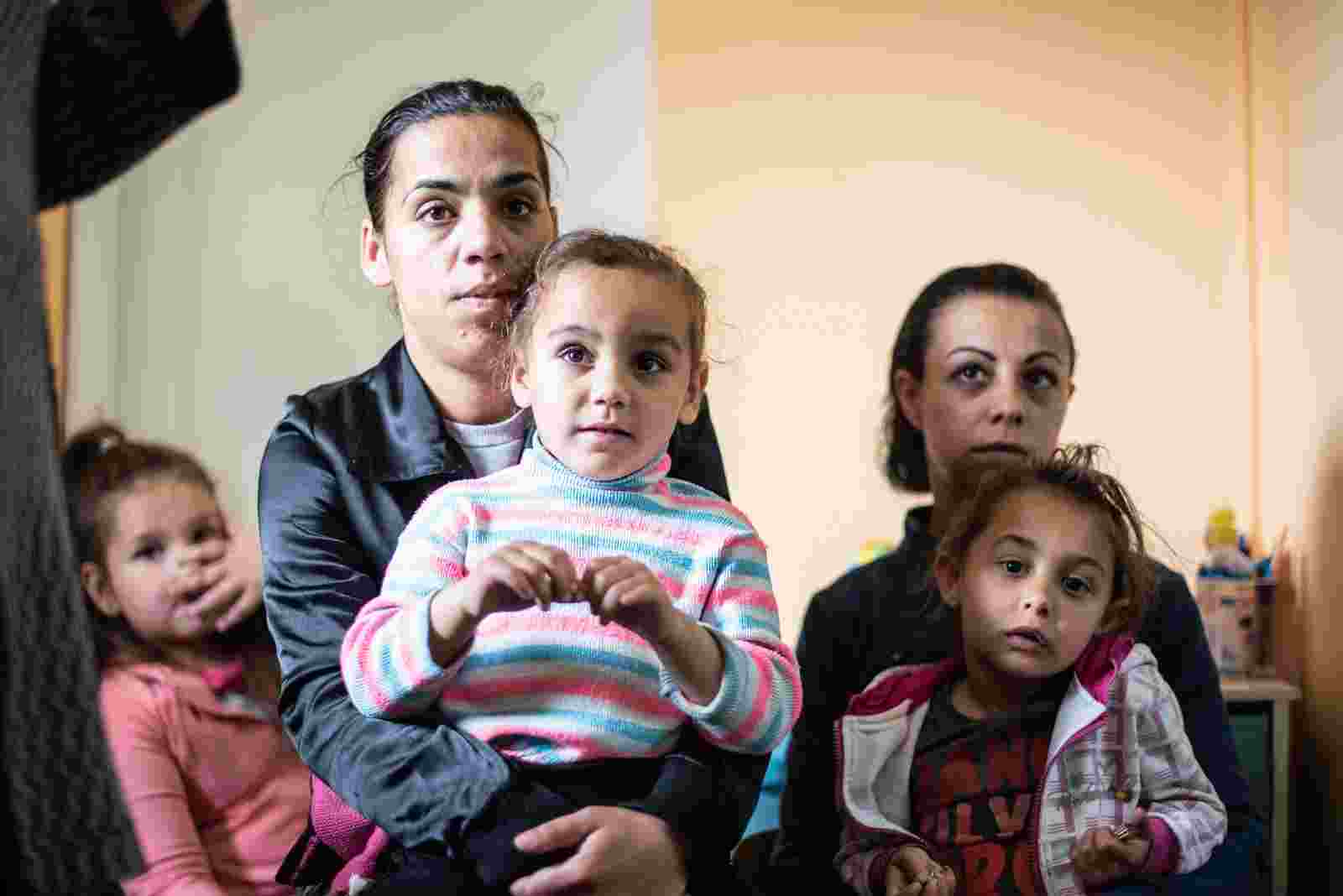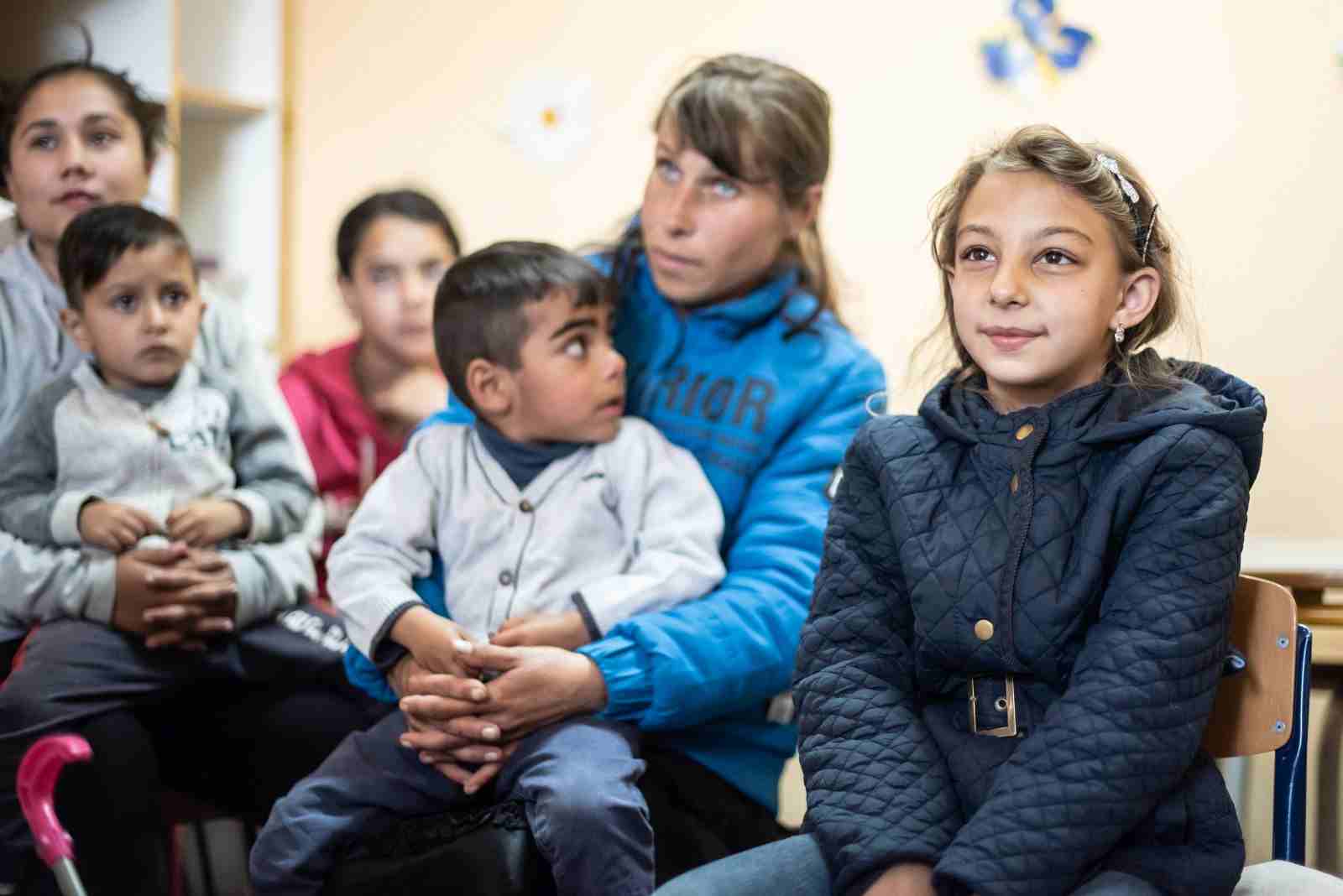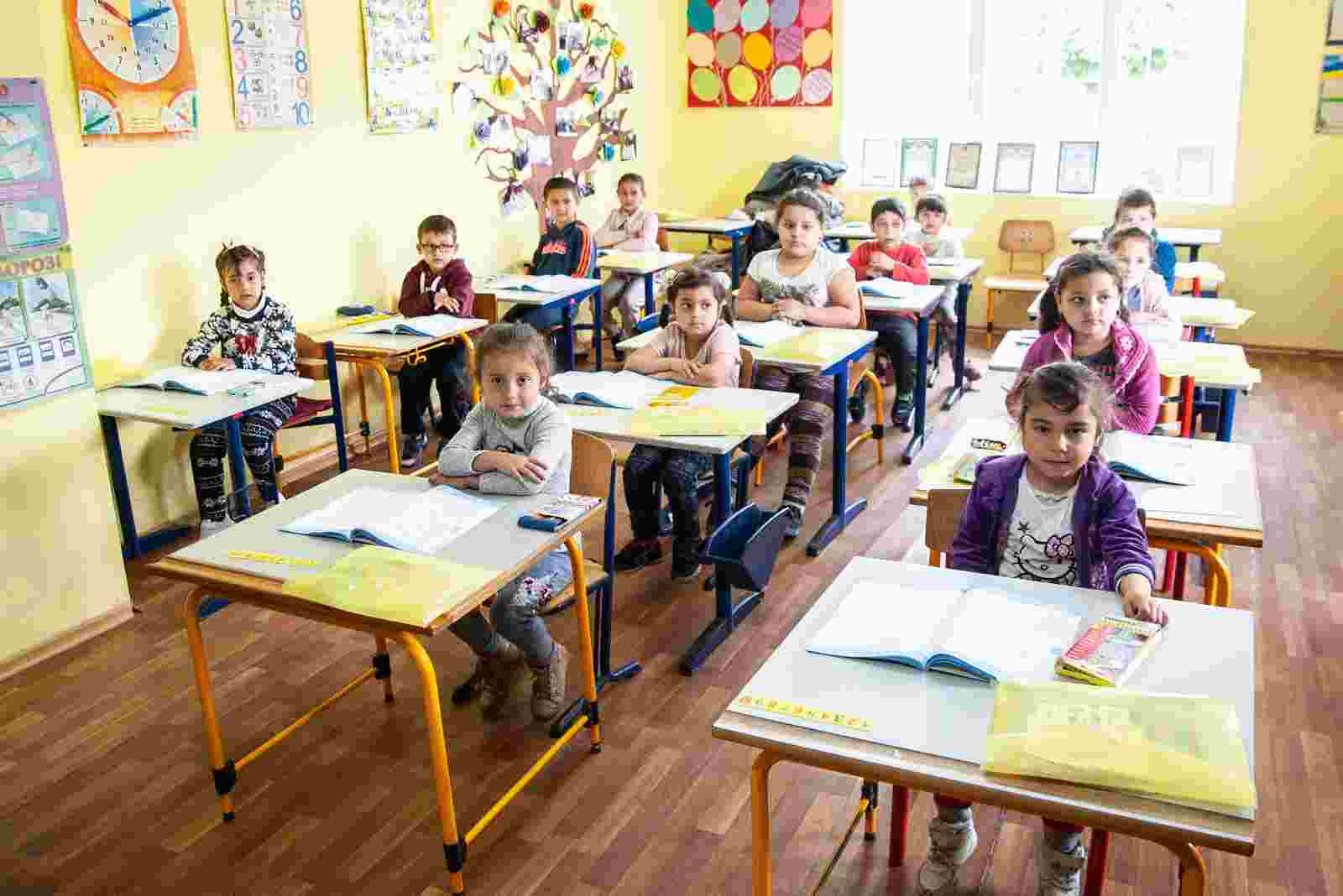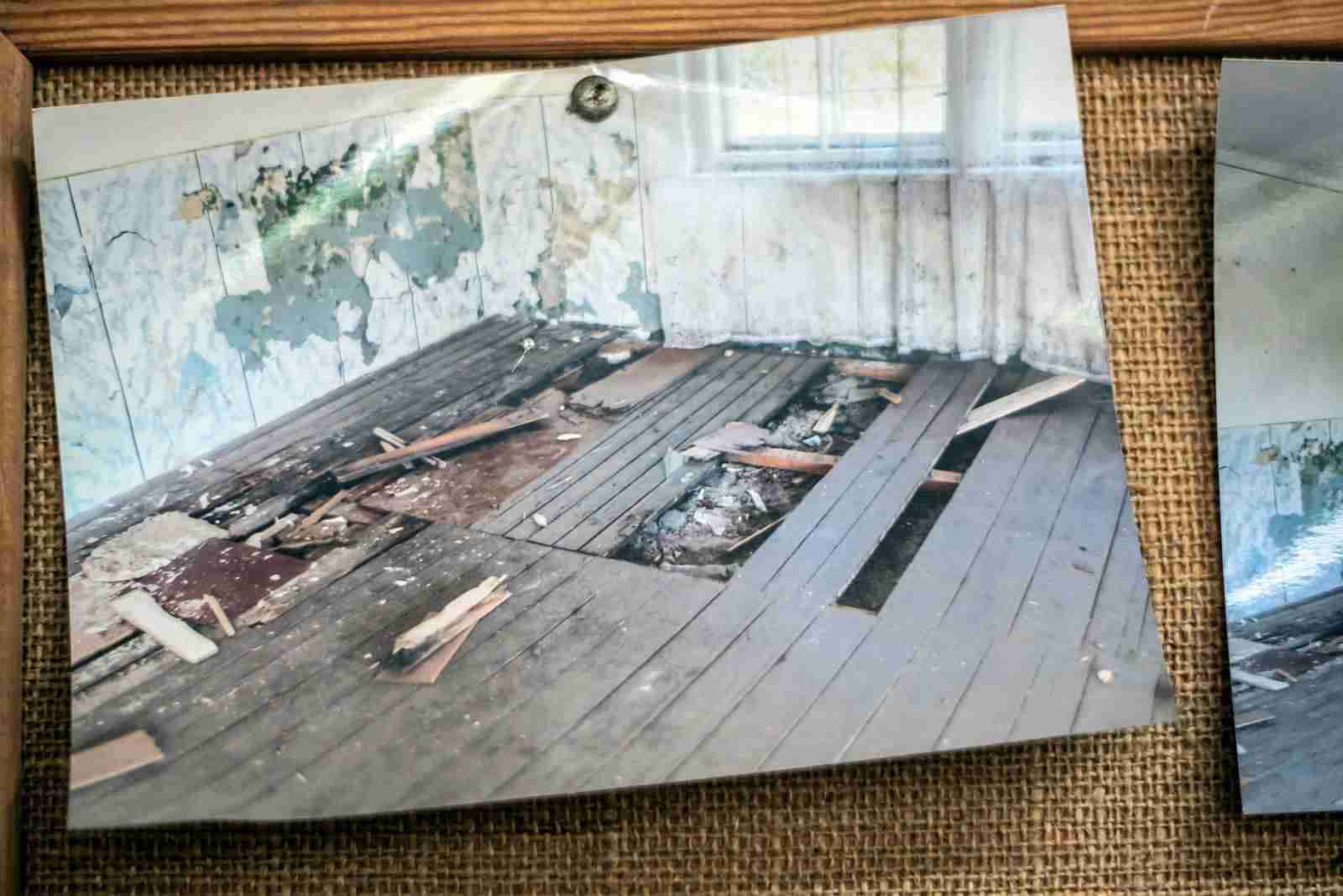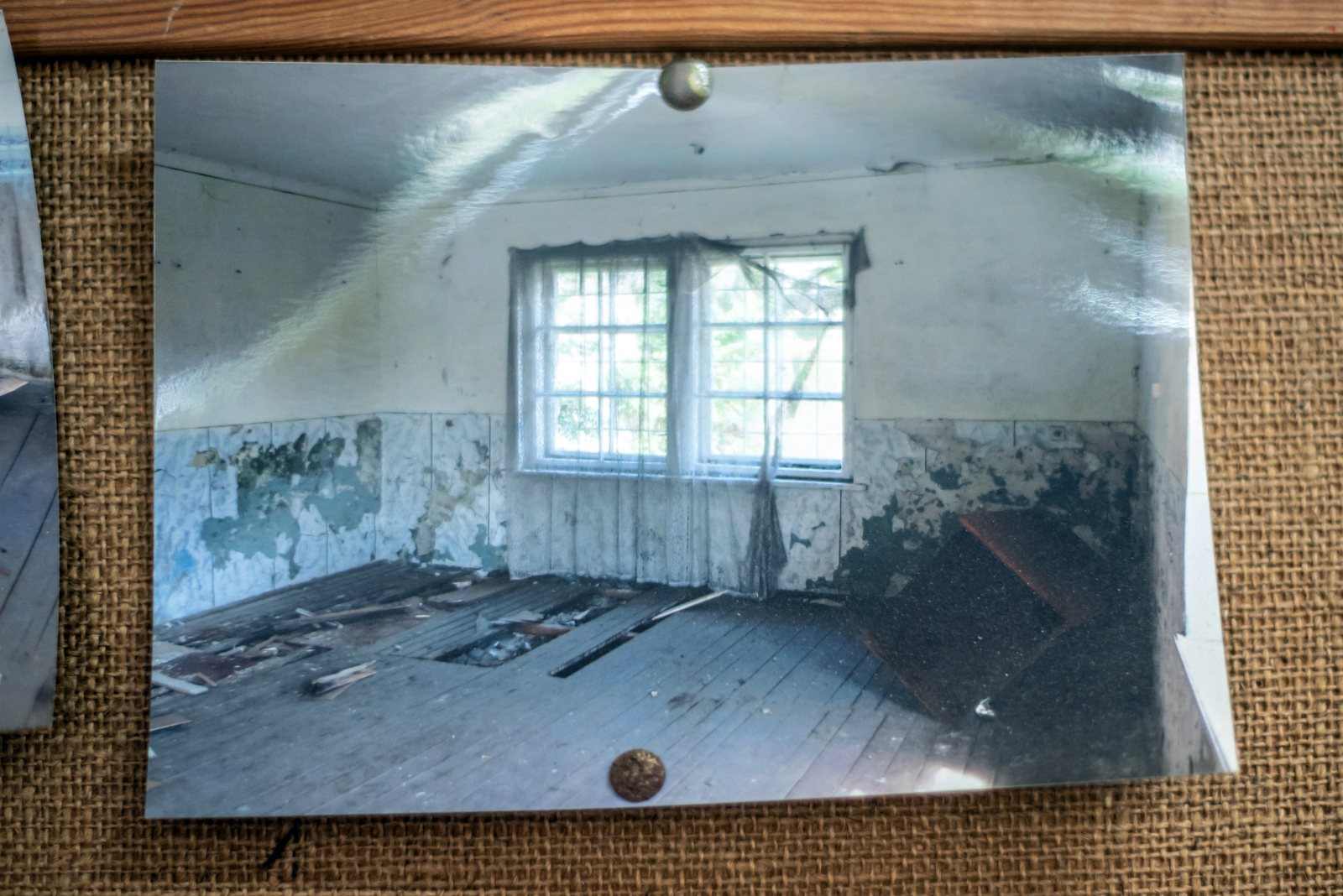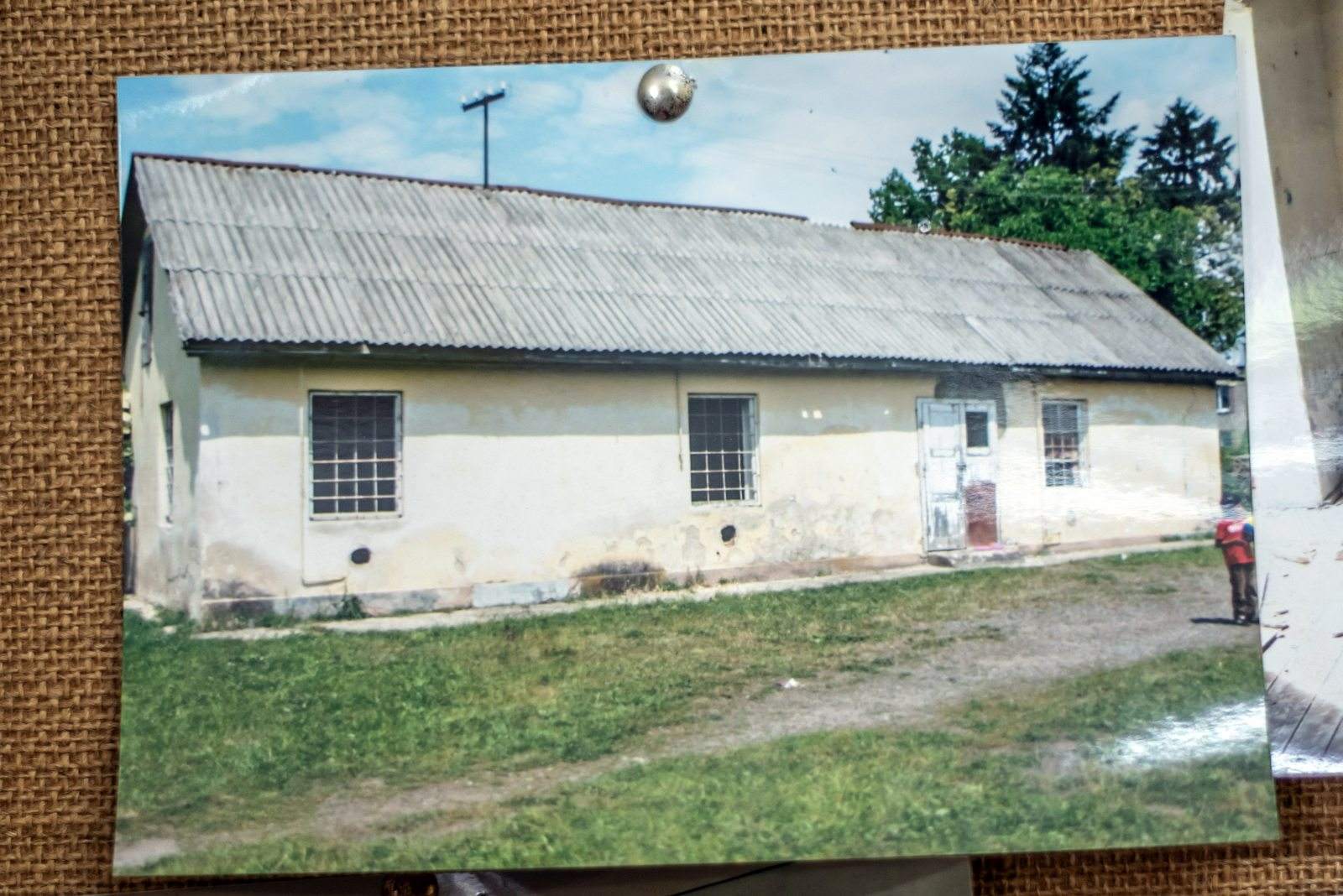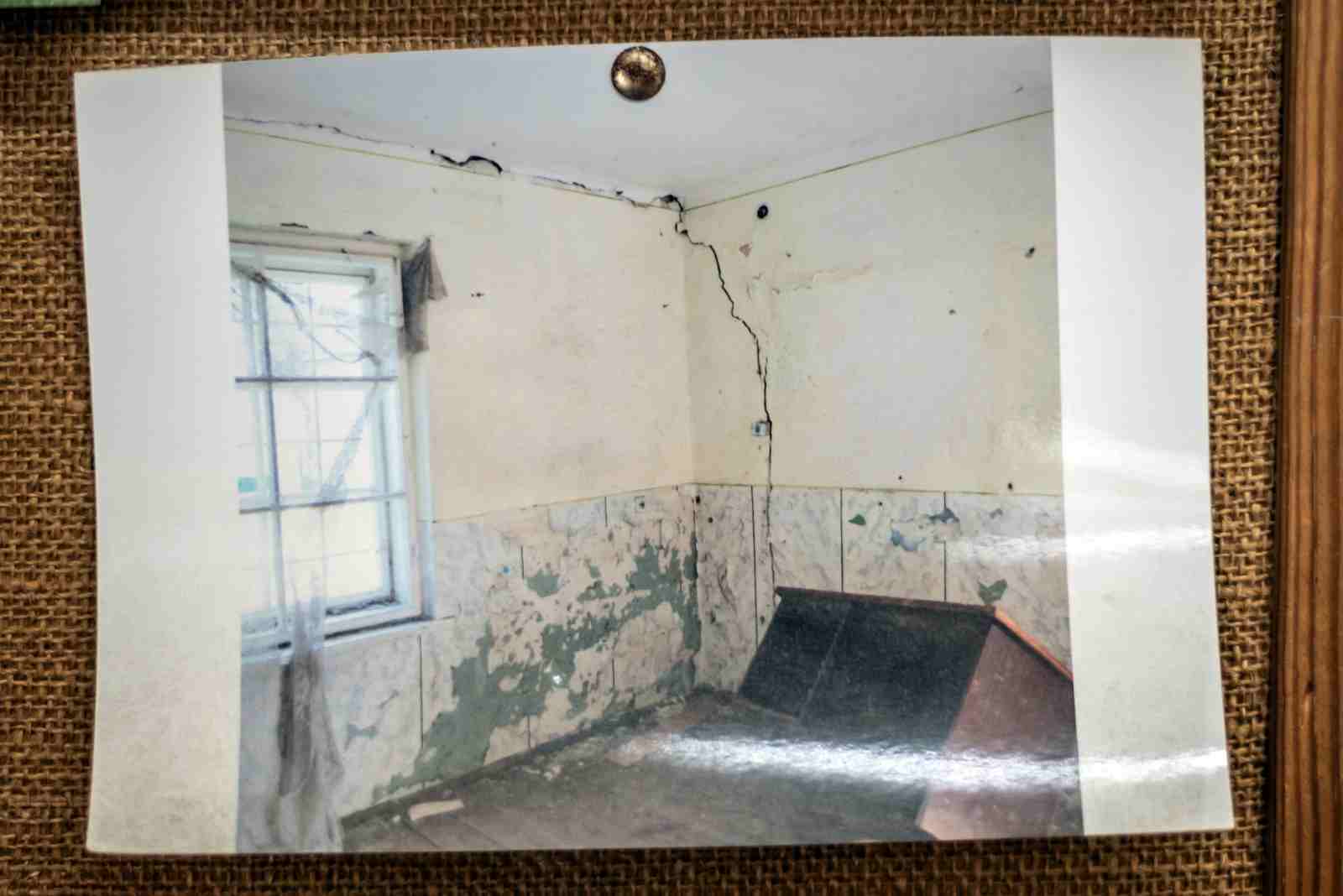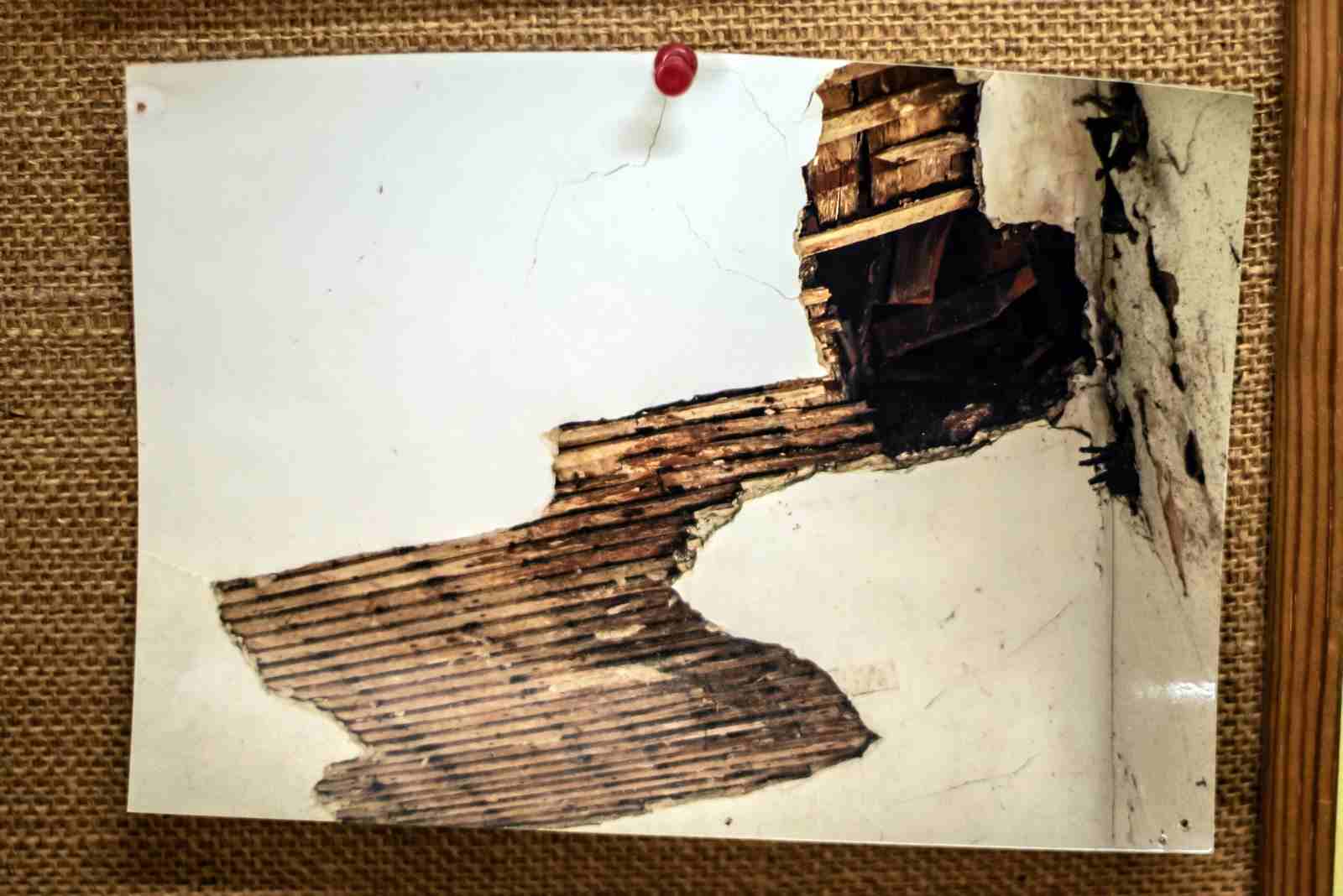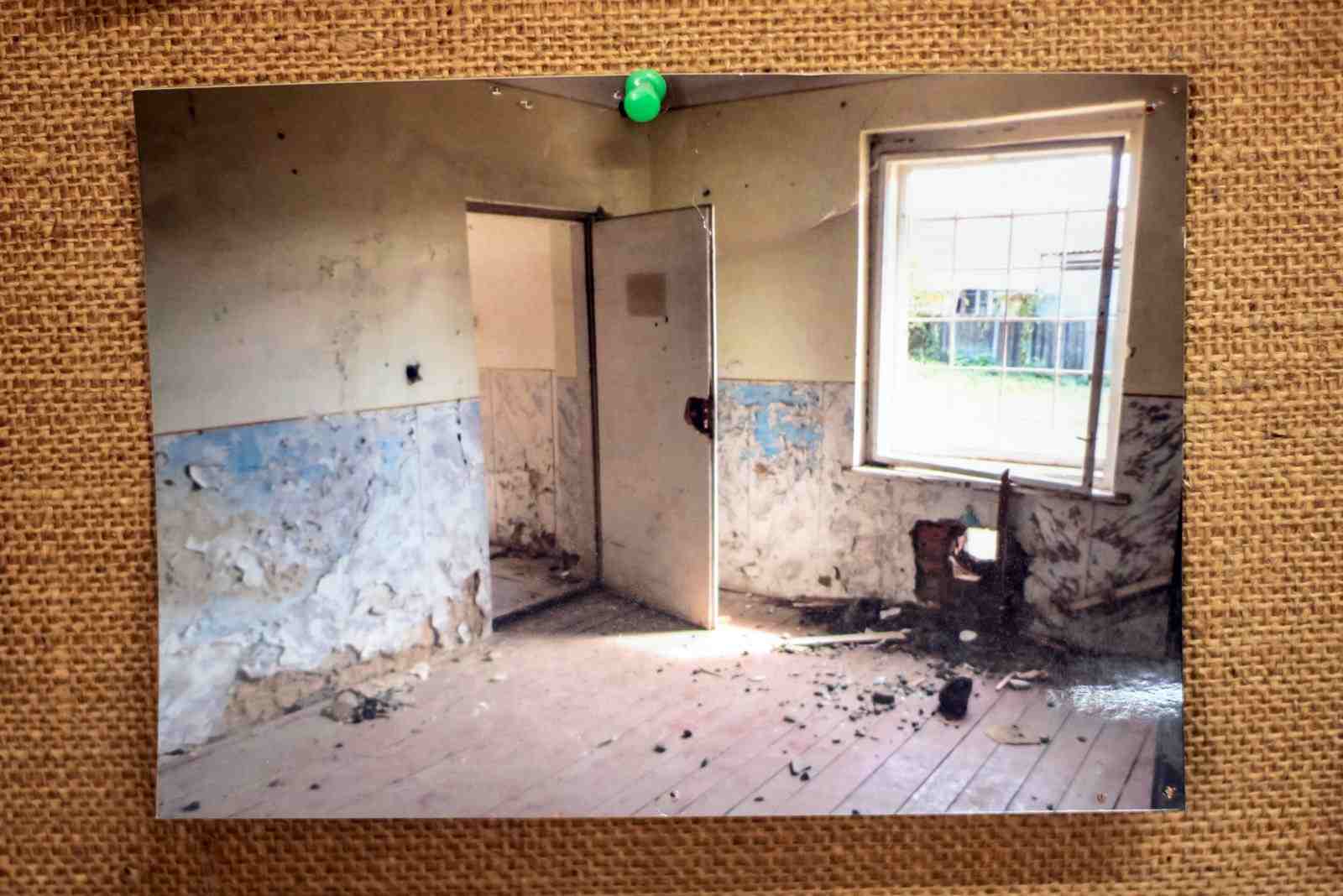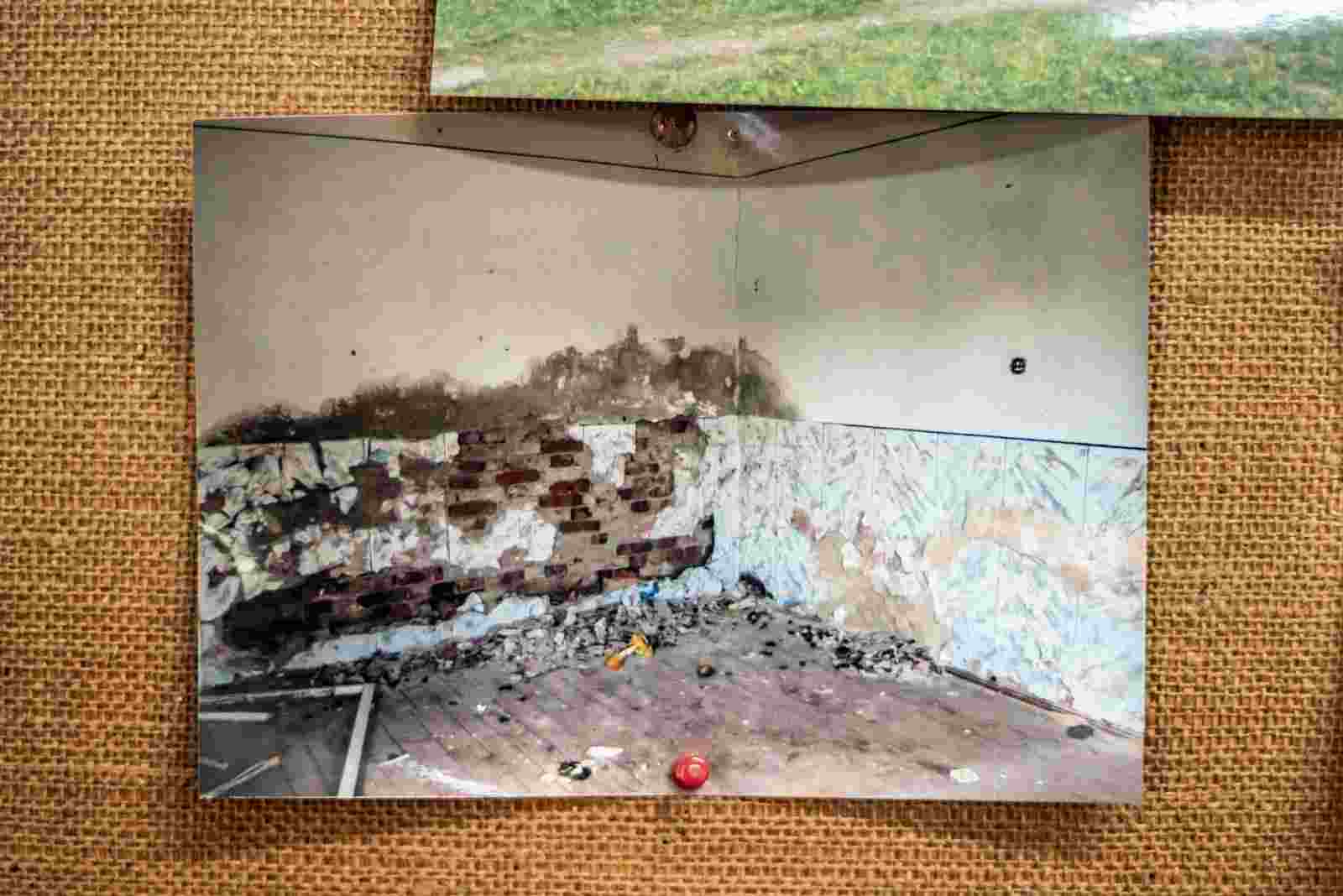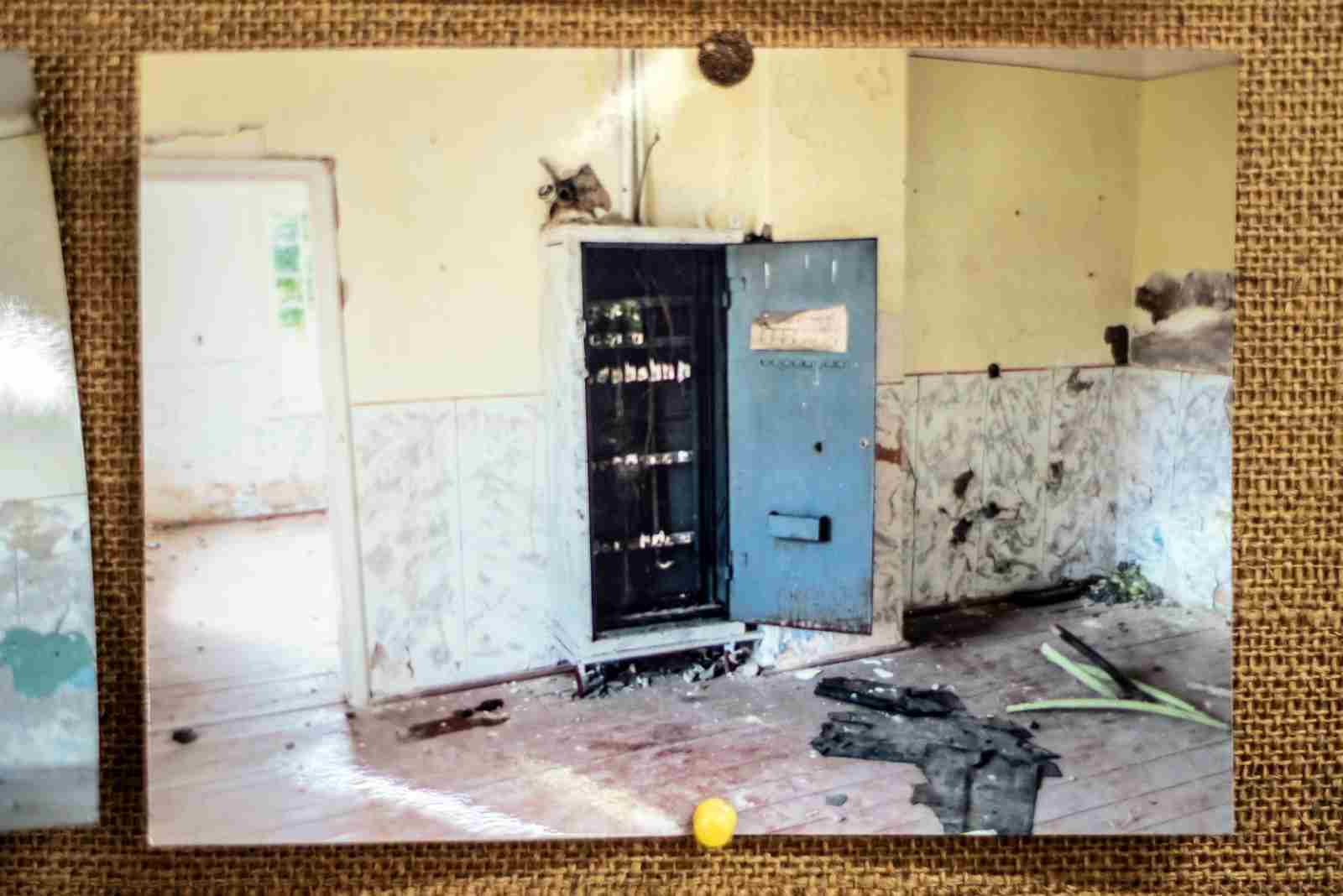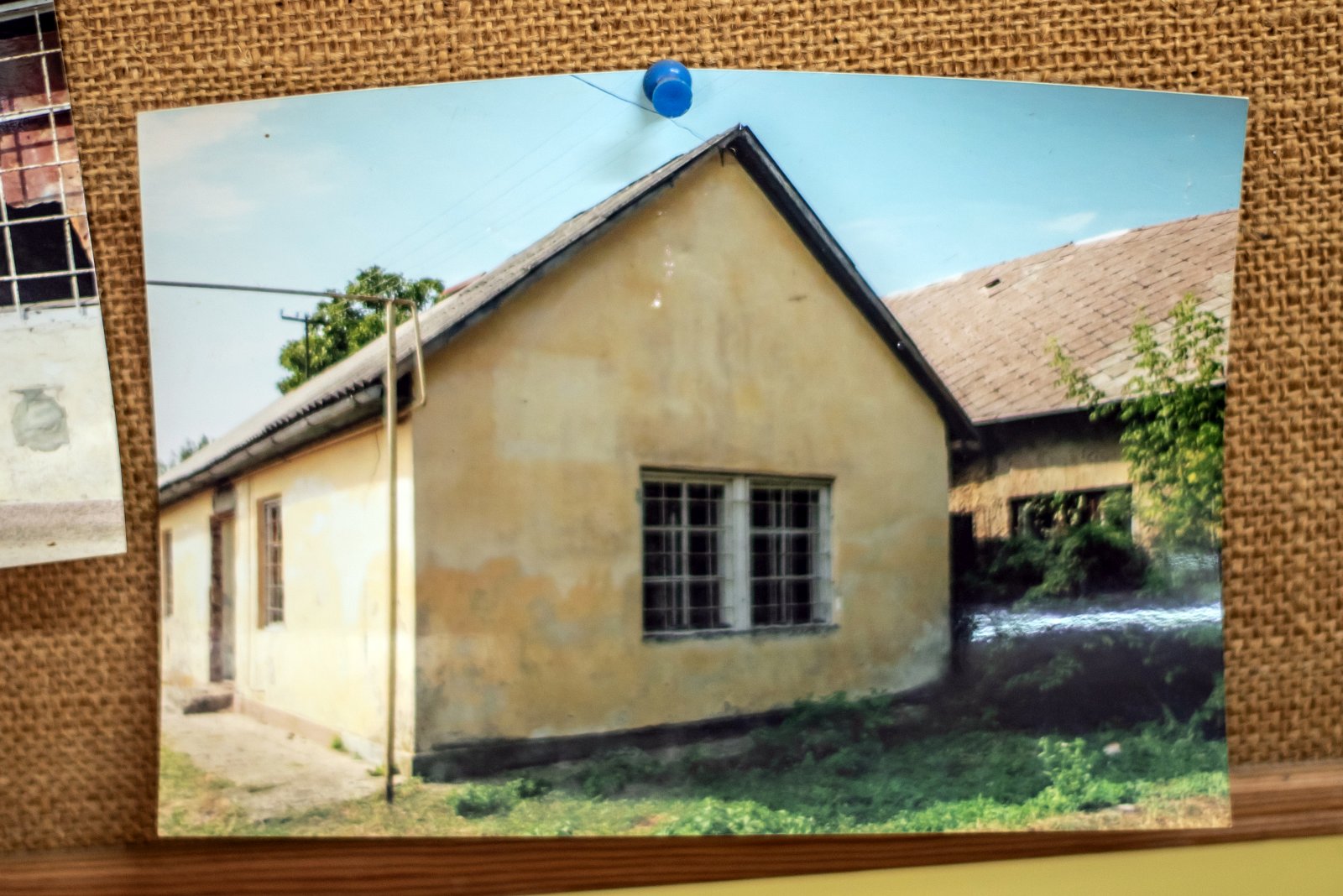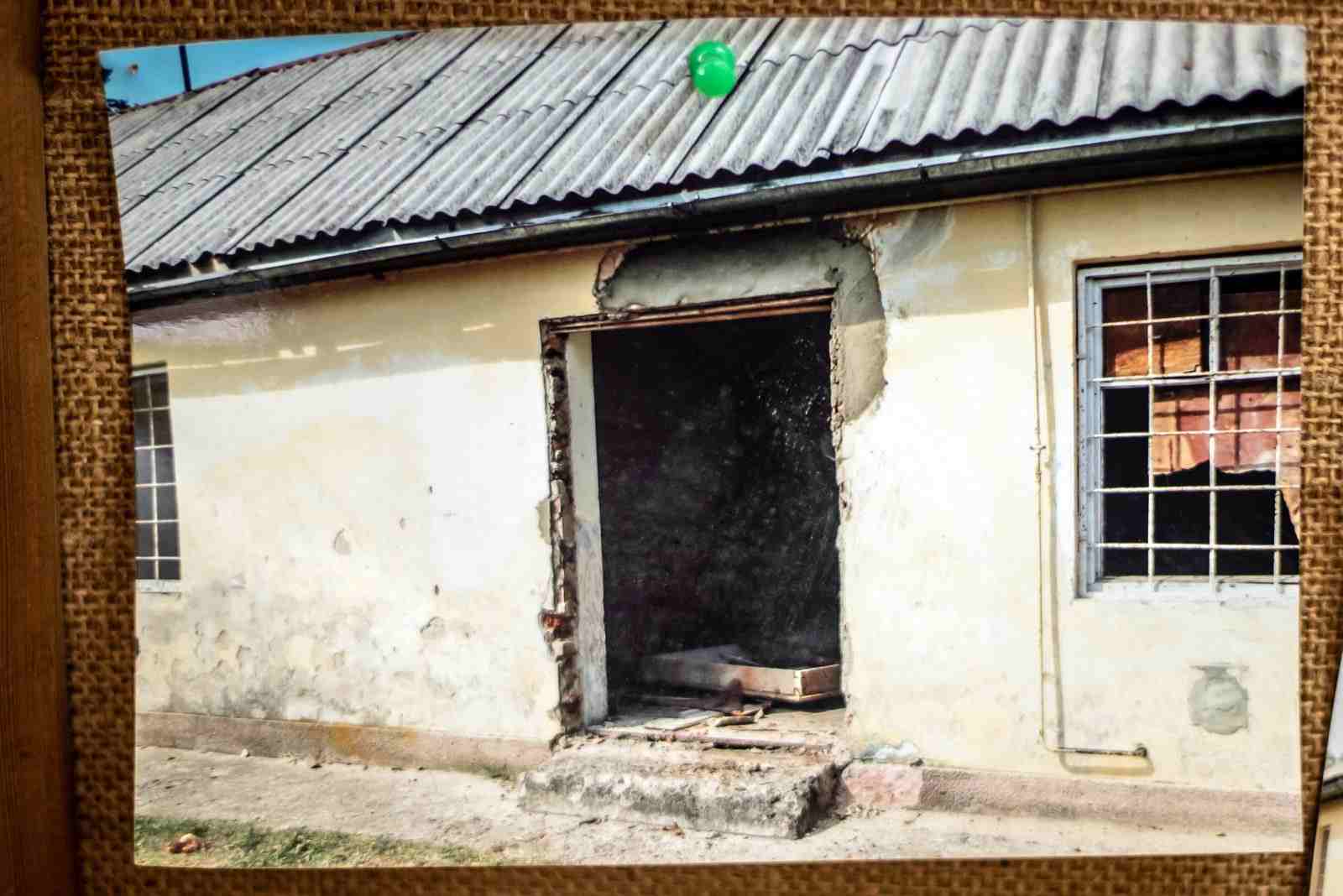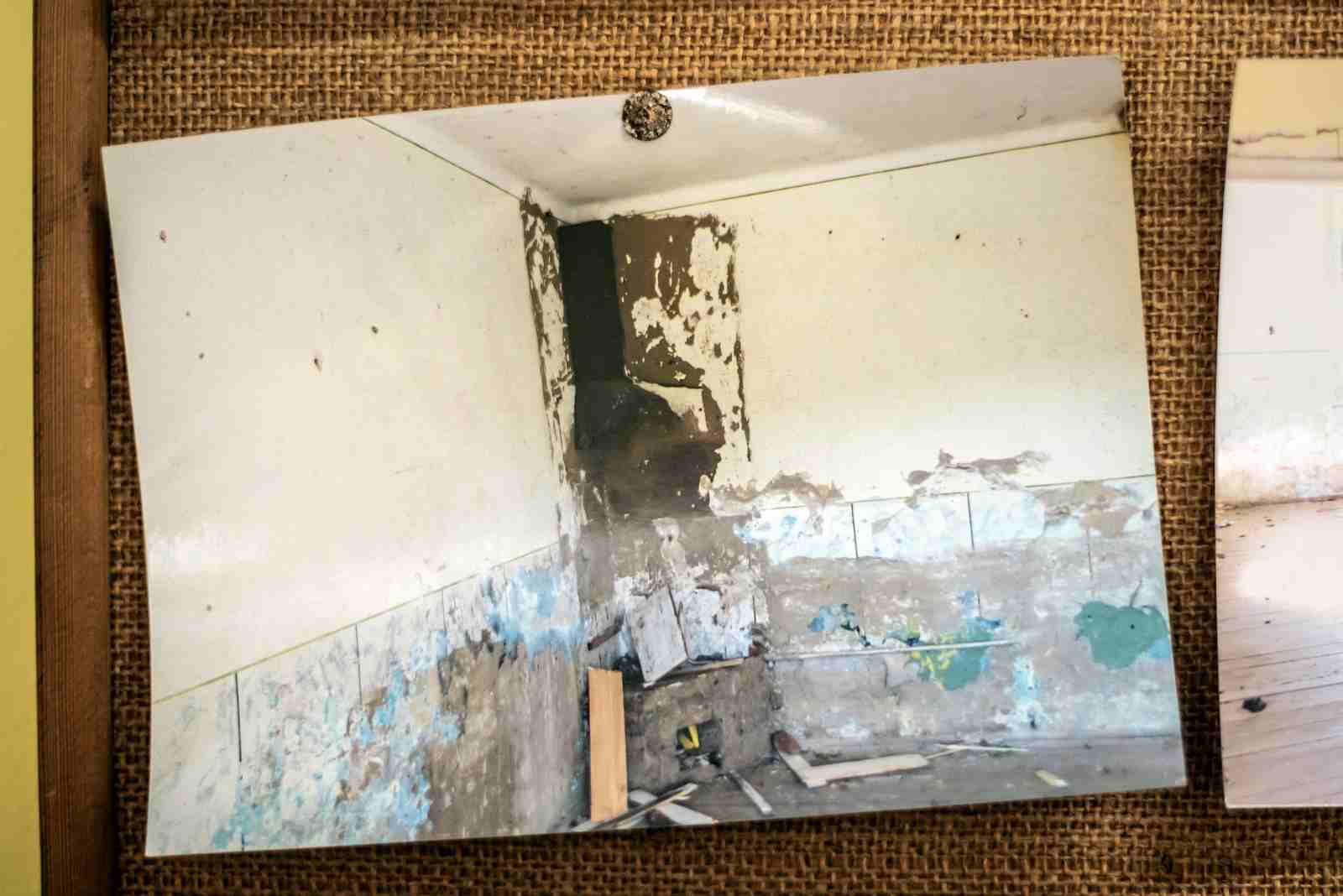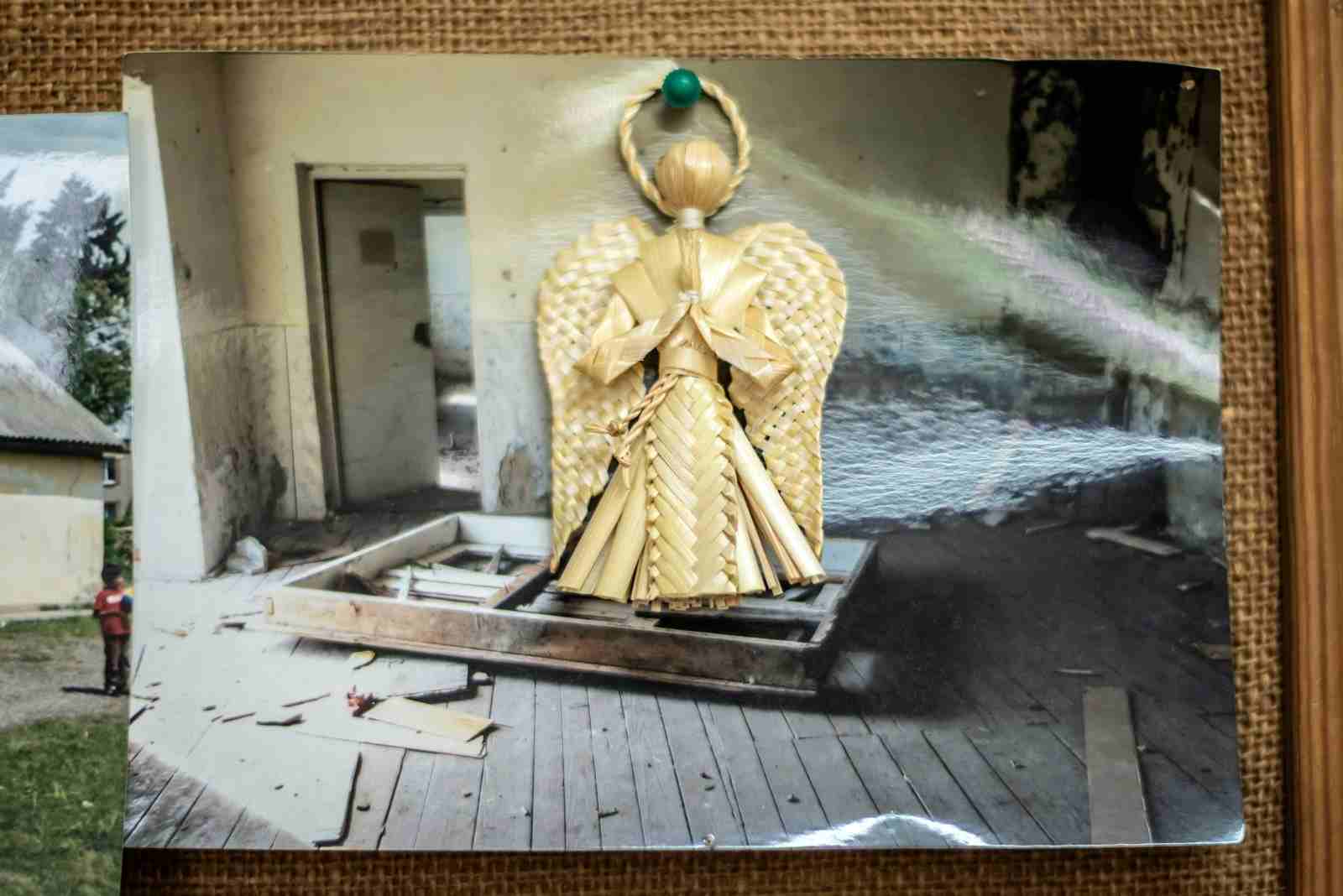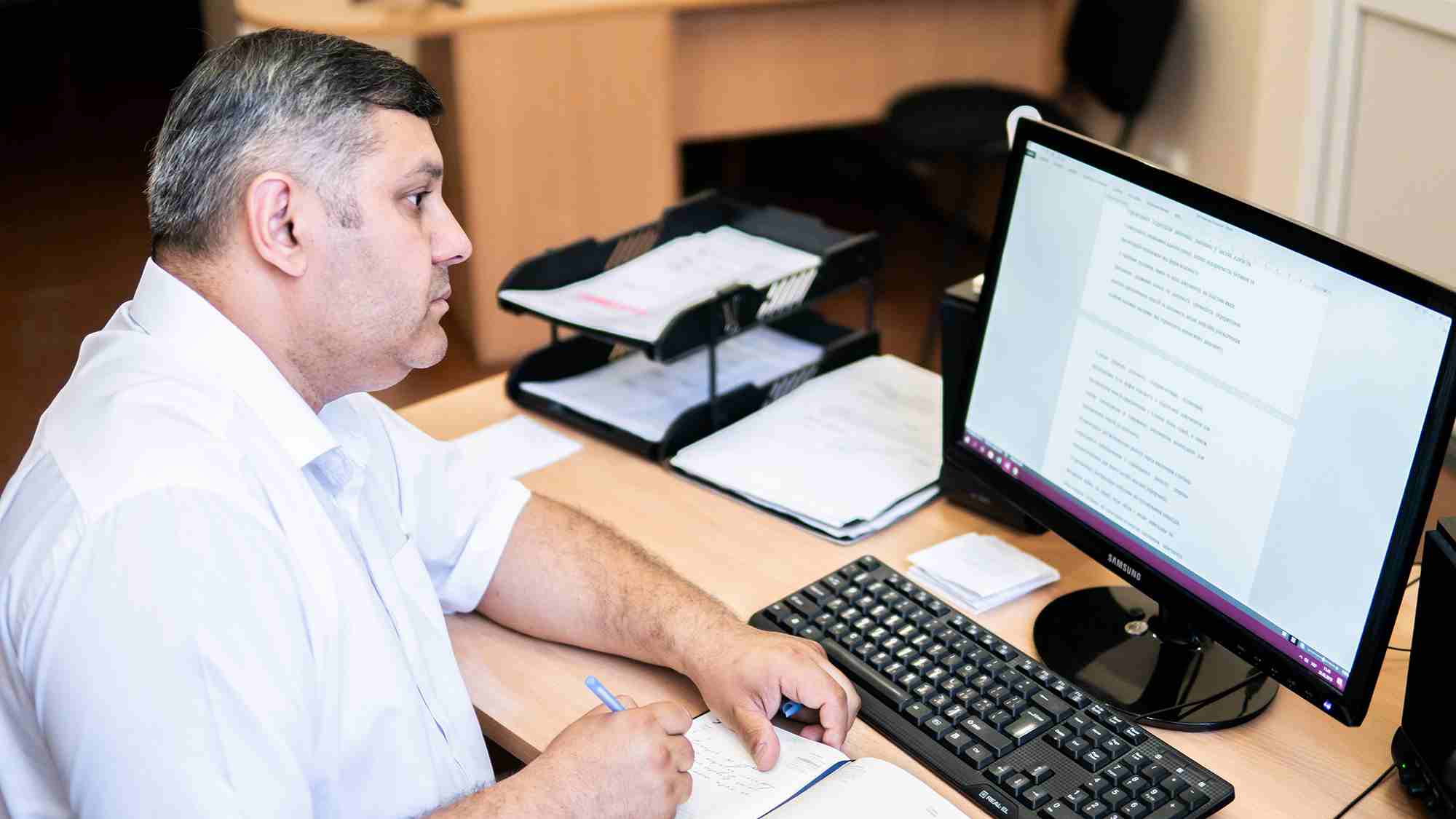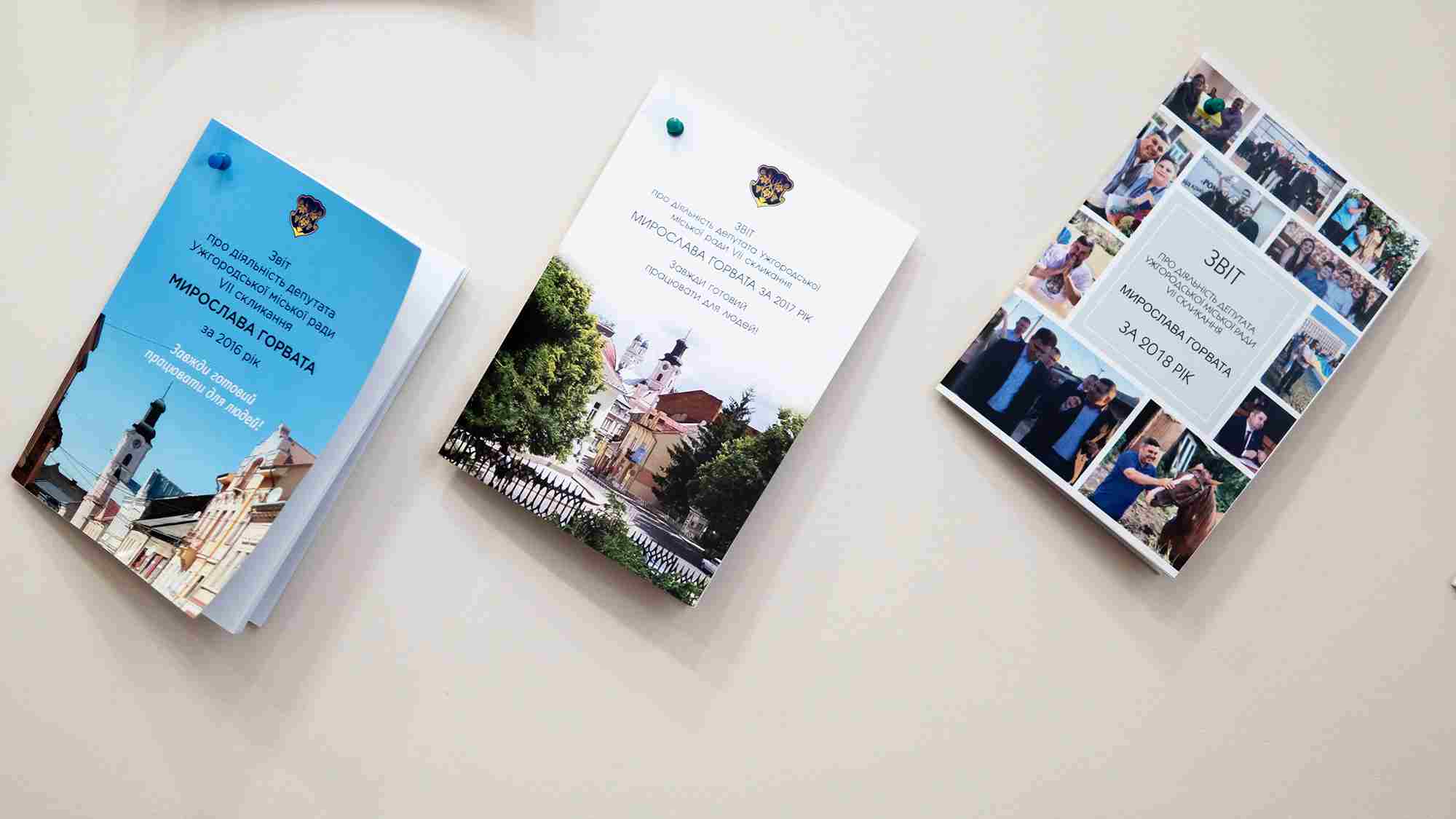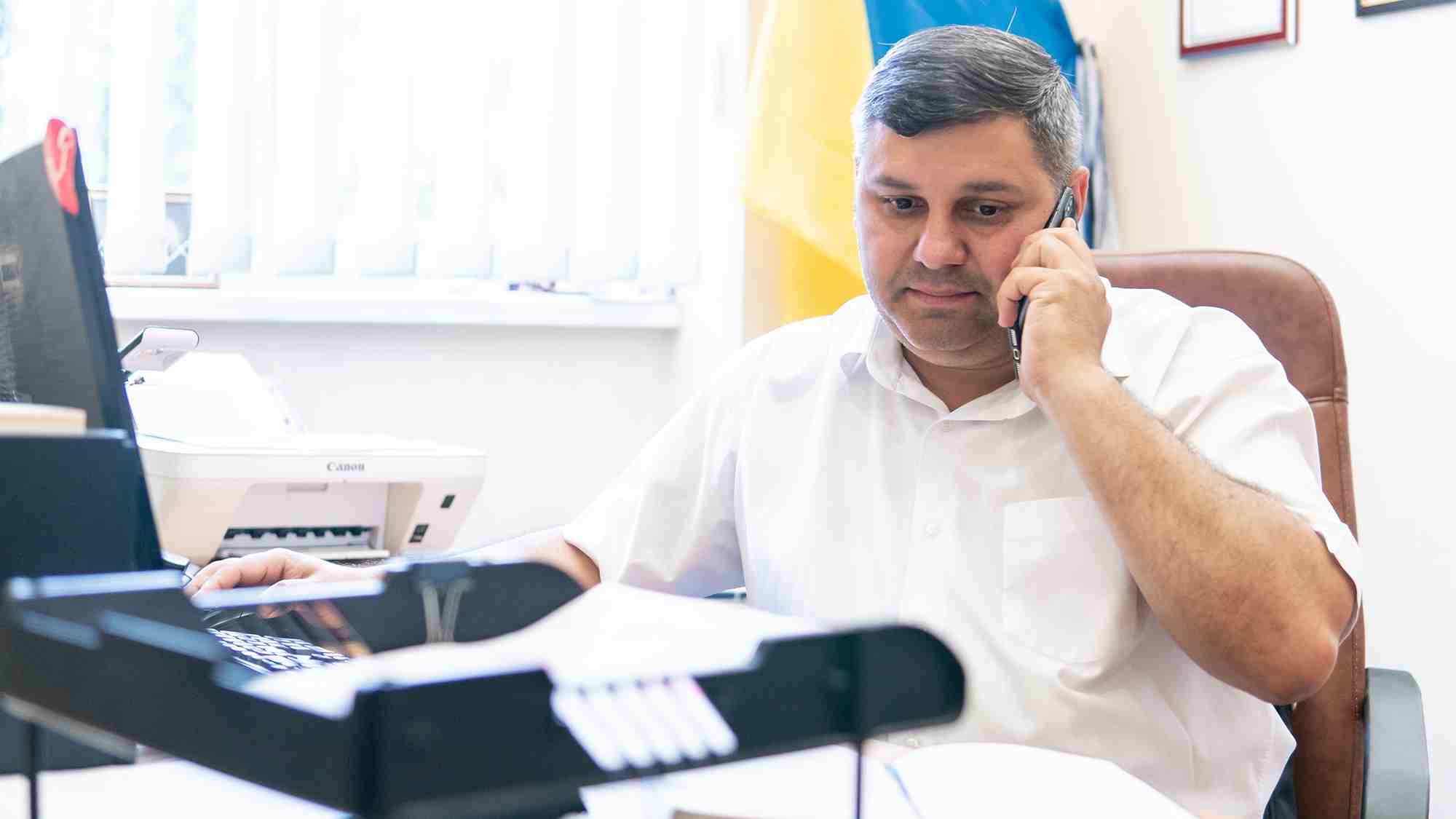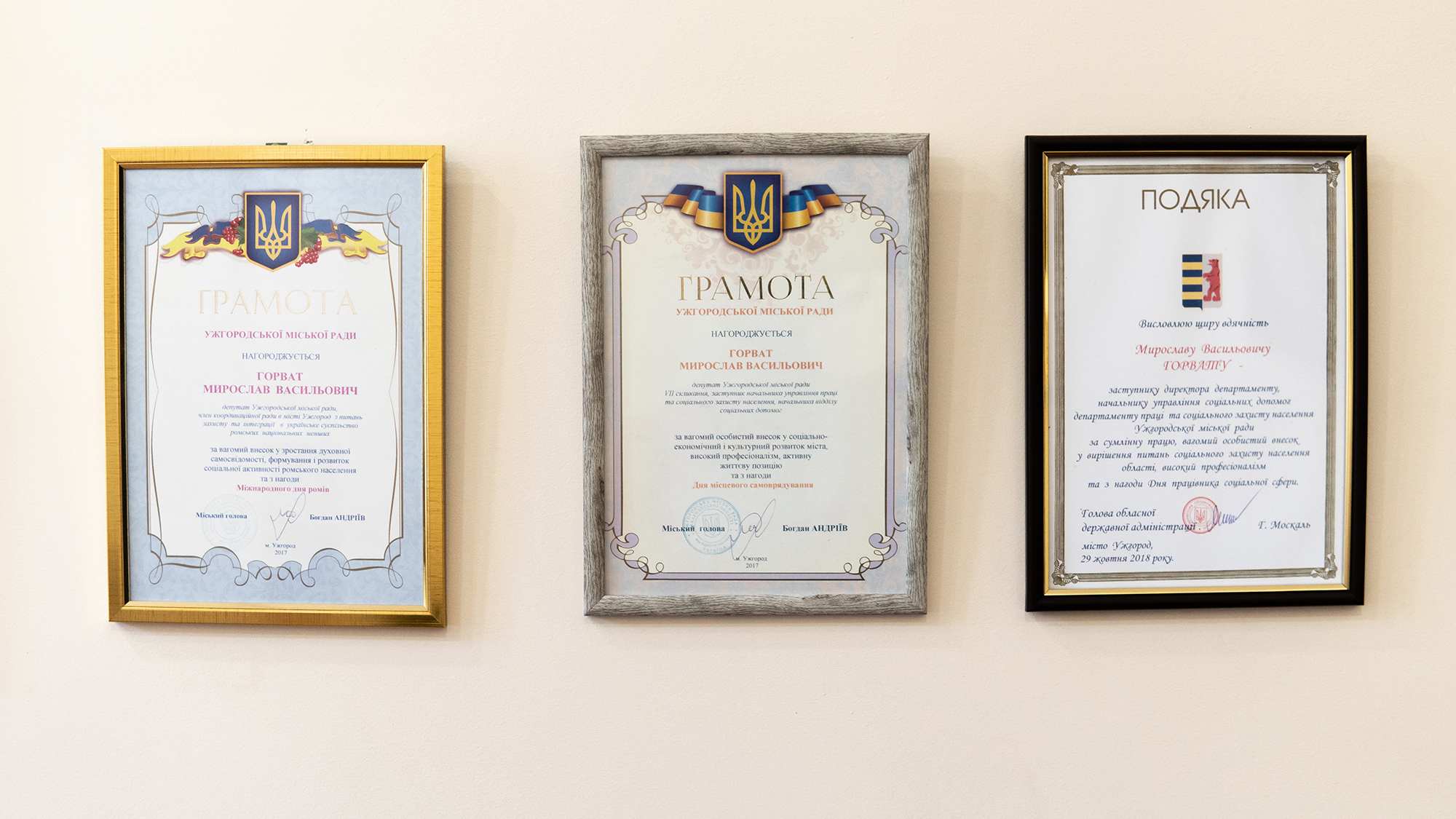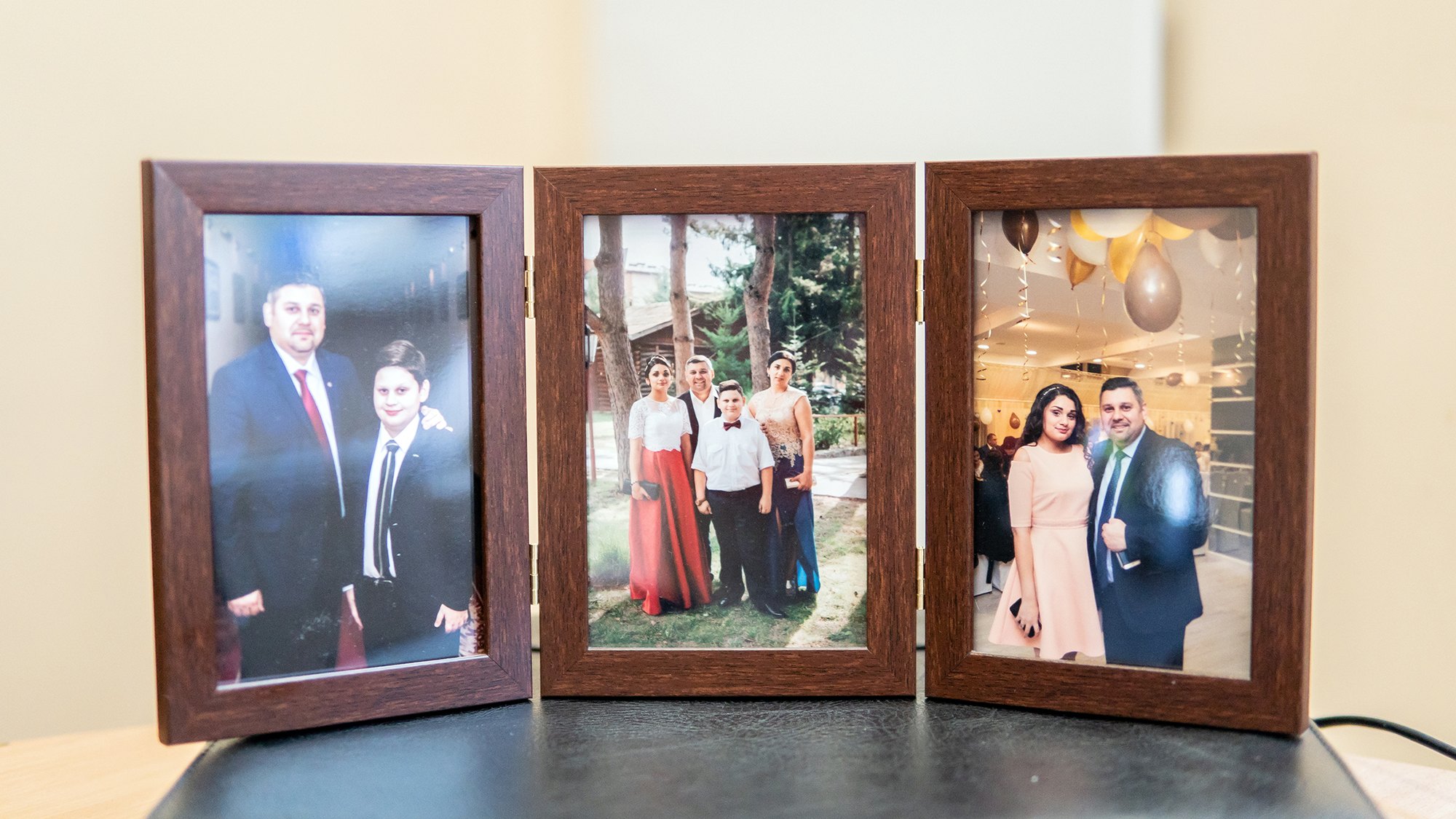What is the way we see Roma? Large families, lots of kids, vagabonds and musicians. These stereotypes sound not bad but they’re out of date. Worse still, when the associative array goes no further than “stealing-reading fortune-begging”. The world is changing, and so are Roma, their lives, goals and endeavors.
We know quite a number of stories, shared willingly on the net, that stress on the word “Rom”, however, do we often hear something positive – success stories, defending diploma theses, obtaining European education? Modern Roma do not go roaming, they study at universities, found public societies and youth organizations, study in European capitals. However, they still experience discrimination and communication breakdowns.
In this article, we are telling stories of four Roma that found themselves – in art, law, education and journalism. They change life around them and the common attitude to Roma.
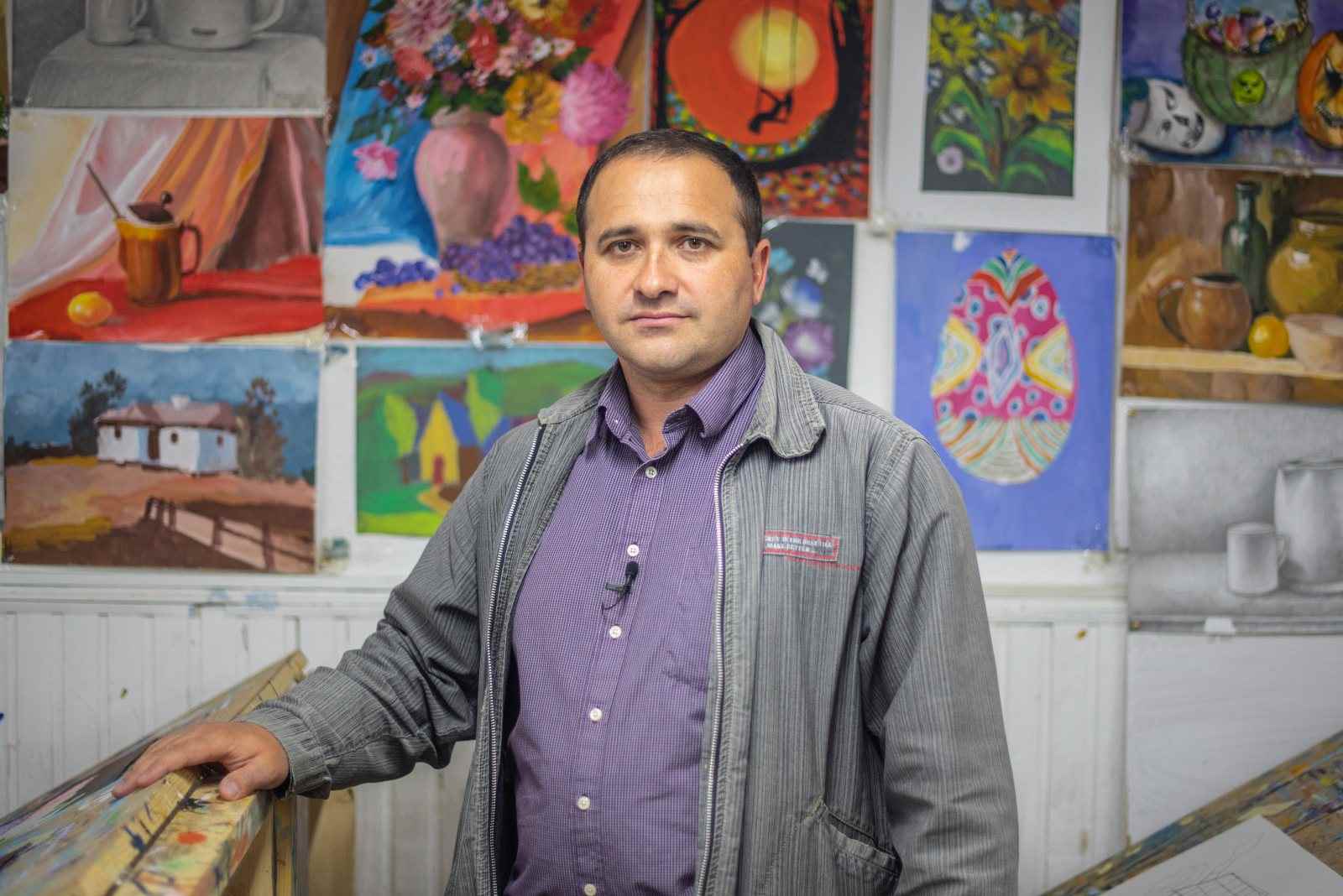
Tiberiy Yonash, a painter: “My main goal is to give speciality to Roma children”
I am a painter. This is my job, I’ve been picturing for 20 years. This is how I earn for a living.
I would like to launch an art school for Roma children, to pass on my talent, so that they had art in their lives, and possibly a job in the future.
My parents wanted me to become a musician. I had studied playing the piano for a year, passed the exam with an excellent mark but as I was in Class 5, my school teacher saw that I had a gift for painting. He sent for my parents and told them about the art school in the town. Frankly speaking, I never guessed there was one. That’s how I entered the art school. I just fell in love with painting.
I come from a common but creative family. My ancestors were great musicians in Hungary. For instance, the famous fiddler Holomboshi. Generally, there were musicians in the family but not all of them work in this job. You have to earn something to live for, while you can’t do much playing music. Mom taught kids to play the piano.
Why did I found an art school? You know, nowadays it is hard for Roma to find their path in life – both at school and at work. It seems to me that our kids advance better among their own fellows. So I decided to establish am art school for them only. Apart from teaching them painting, I also educate them, tell them how to behave, how to learn. All of our kids are different. It is interesting for me to reveal talents. Once I see the kid is not making any progress in painting, I will not hide it and tell them to try singing or playing musical instruments. As for the children that have a knack for it, I work very conscientiously and do my best to make them fall in love with the profession like I once did.
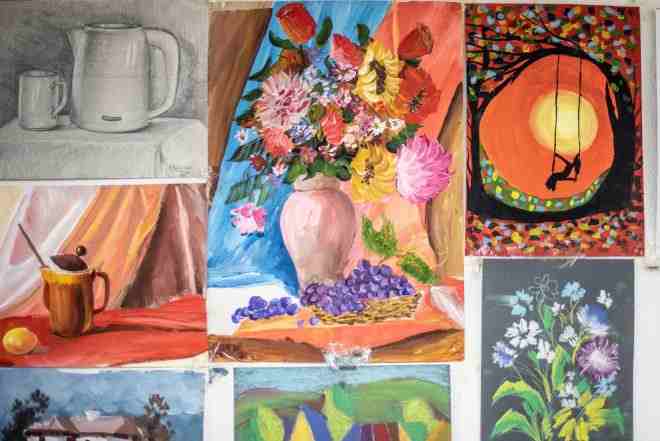
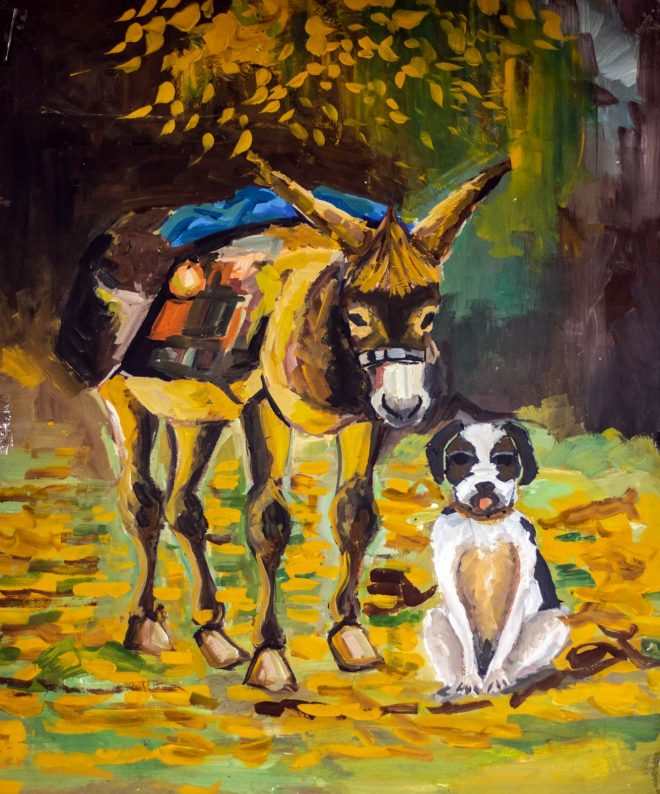
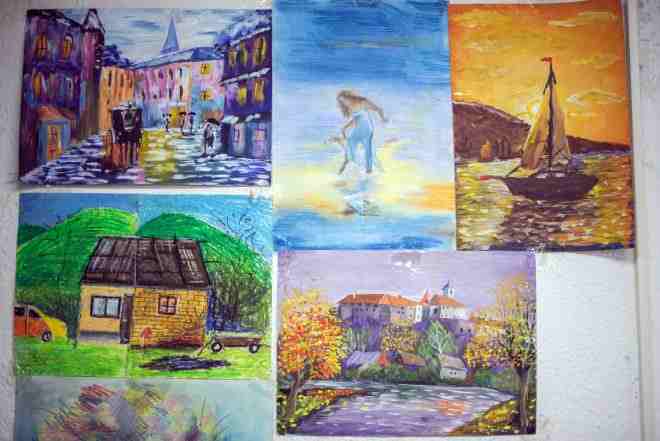
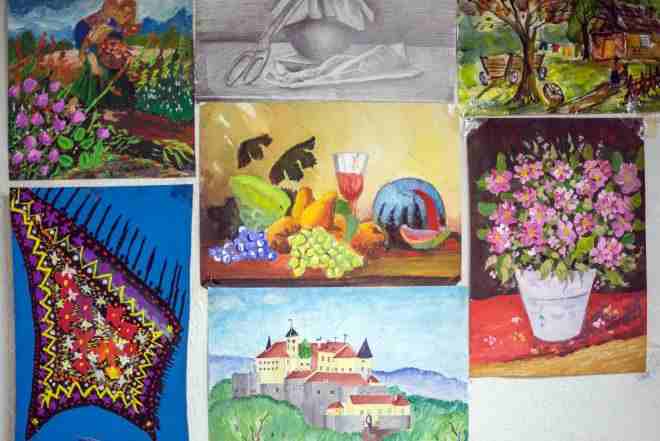
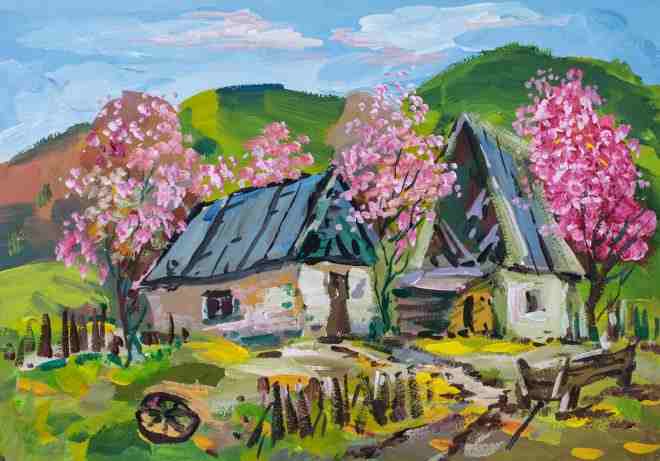
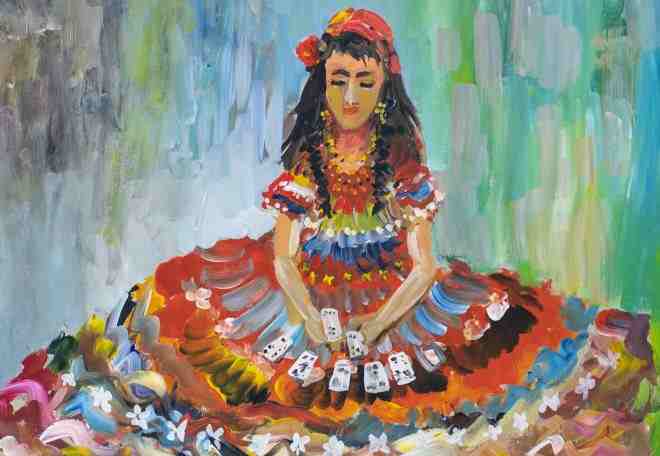
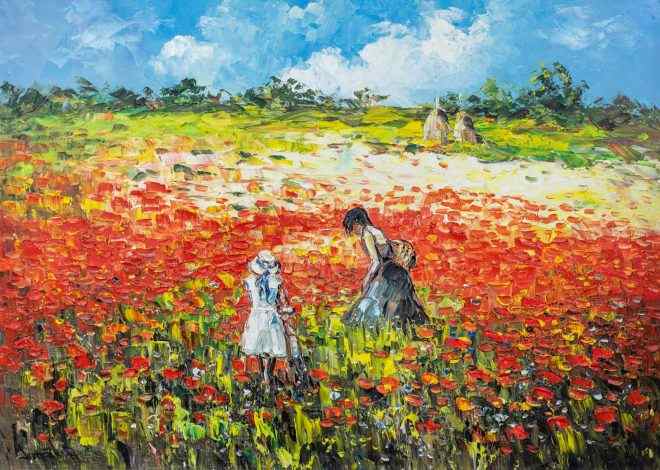
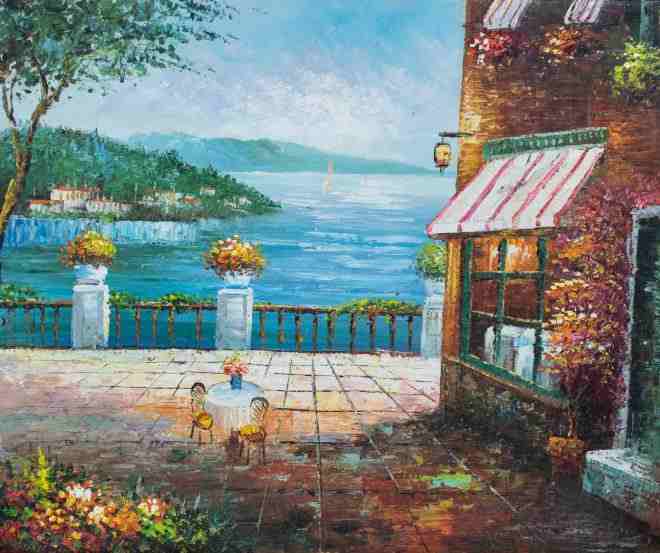
Our school has been functioning for three years now. Fortunately, we have the fund “Renaissance” supporting us for two years. If not for them, all of this would be simply impossible, since this process means not only a pleasure but expenses as well. And the kids study free of charge, we provide them with all the necessary materials.
My main goal is to give a speciality to Roma children, so that they could always earn their daily bread. I do so and I know one can keep a family with this job. The most important thing is not to give up.
At first I gathered up 30 kids and divided them by age and into groups. Now I have over 50 pupils. But surely, I cannot order them all to attend classes four times a week. It may happen that a kid has no clothes to go out from home. Sometimes the parents leave for work and elder children have to look after the young ones. I do understand all of such difficulties. But still there are many children that never cut a single class. Much turns on the parents, it’s them who are to explain to their children that studies are important, encourage them.
I also do my best to motivate the children. For instance, we have had a picture exhibition in the Palanok Castle, in the Museum of Architecture and Ethnography in Uzhhorod, in the fund “Chirikli”. And this year we are devoting the exhibitions to the Roma day and hold them in Mukachevo and Kyiv.
As for my own pictures, I regularly tour the spa resorts. At dinner time, I arrange them along a wall. And tourists buy them. Sometimes it happens that I sell none, and then – all of them. I do realize that it is not just bread and butter but art. People don’t need it daily. I also have lots of orders, from wealthy people, town’s offices. Sometimes they order 20 pictures in a single assignment, to decorate the whole facility.
To my mind, what my clients like most is that I do not stick to a certain painting technique but work in various ones. In this way it is even more interesting for me, I always explore something new. I like water color, graphics, oil painting, gouache, tempera paint. My artworks are spatial and people like that. Every day I feel like creating something new. Just like musicians play in a different style each time, I do it in my job.
You live and learn, as the saying goes. And I had wonderful teachers. I used to come to Uzhhorod, to the workshops of Liudmyla Korzh-Radyko, Nadiya Ponomarenko. In Mukachevo I followed Petro Feldeshi and Zoltan Mychka. All of them gave me a lot. I asked them questions, and they showed me things and explained them to me.
To reach success, you must work. Time will give you the rest. You should show up your work and not just sit in your workshop. Share what you have with people.
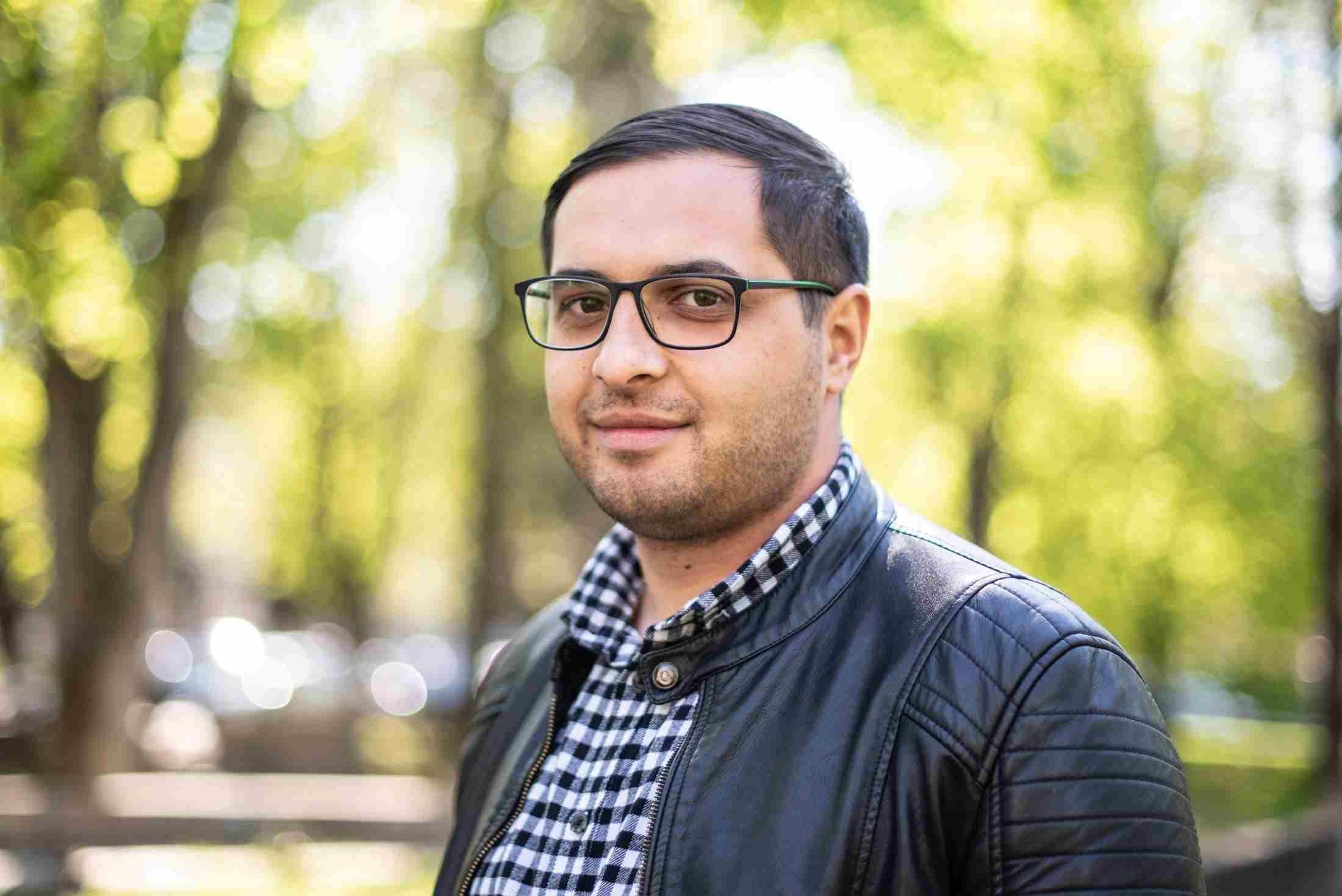
Victor Chovka, a TV-journalist: “My family in Uzhhorod numbers over 300 people”
I fell in love with journalism back in 2014, thanks to Yevhenia Navrotska. It was her who took me to the former “Tysa” studio, now called “UA:Public “. I worked as a volunteer there and then as a staff member, up until 2018. Then I started working at Channel 21, and still working with them now. We have a program called “Romano Lav”, which is translated as “The Roma Word”.
You won’t believe it: I dreamed to become a newscaster as a child. Then the dream was forgotten but yet in 2008, when Willie Papp was creating his TV-program “Romano Jivipen”, I dreamed of getting to it. But at that time I was still a student, so I had to wait a little.
My friend have a joke, saying that I’m a diploma collector. At first I studied at ZakDU (Transcarpathian State University) and then there was the union with UzhNU (Uzhhorod National University). So my first degree was still from ZakDU, while my master’s degree diploma has UzhNU on it. After that I went to Budapest, there they had a special Roma program – Roma English Language Program, at the Central European University.
It is a common belief that Roma families are large and multi-child. But that is only a stereotype. I myself, for instance, have only one sibling, a sister. While relatives, a kin – that’s a different story. Our kin is probably the largest in Uzhhorod, so wherever I go I meet relatives.
Being a Roma in Ukraine may appear different. It is on the one hand a pleasure – when people get concerned, shoot videos and are willing to come and see the way we live. But recently I have been feeling disappointed with the wave of negativism on the Internet. I can see more stereotypes appearing in the attitude to the Roma, while the old ones are revitalized. It is unpleasant for me to hear all that. As one of my mates says: “The world is changing and so are the Roma”.
Unfortunately, all Roma are judged by a misdeed of a single one. In case something happened, all Roma are to blame, in the society’s eyes and not just the person who actually did it. Talking about the Ukrainian community, everything is different: the one who sinned is judged and not all the Ukrainians. Such things have consequences not really good, since there already exist some Roma communities that become unsociable. They think: “Why should we be open if there’s so much negativism towards us.”
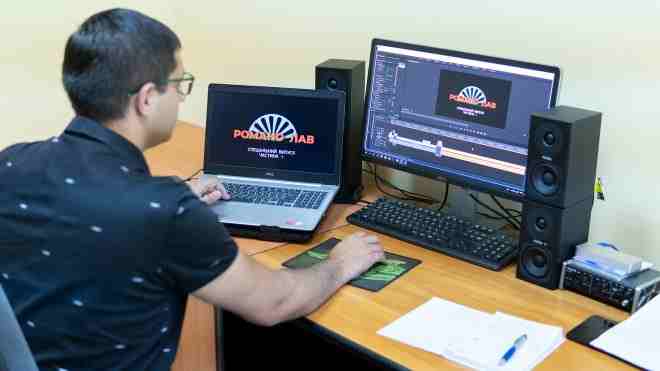
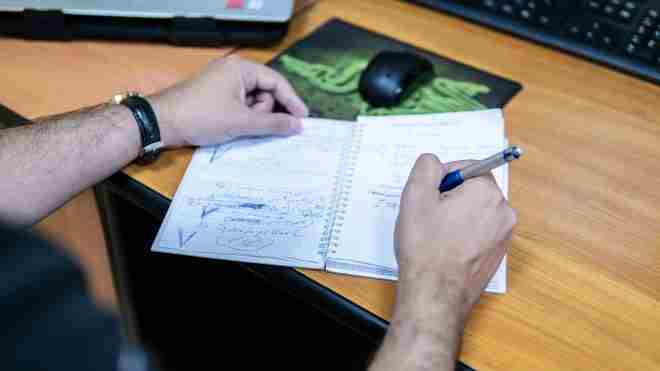
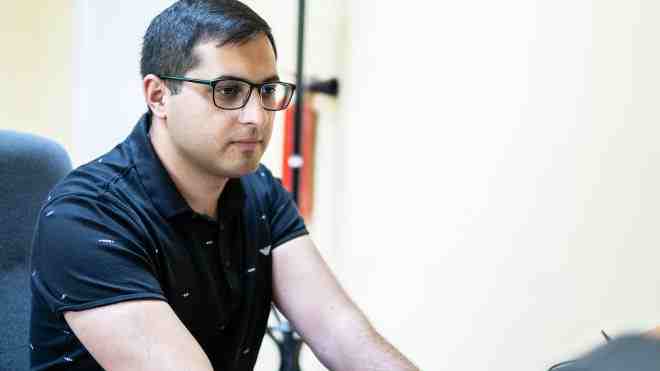
For Roma, it is support that plays the greatest role in achieving success. That from parents, society around you. The way you live is also very important. If I lived poorly, I wouldn’t be able to enter the university, continue my studies. It is poverty that prevents going further. So that’s the vicious circle: not studying because they’re poor, while they’re poor because they’re uneducated.
I have always been inspired to achieving goals by my family. And also – the initiated Roma movement that is currently gathering pace all over Europe. There is a possibility to see what summits can be reached by acting productively, and not only for the Roma community but for the whole society you live in.
Relationships in Roma communities can be different. For instance, in Transcarpathia there live various ethnic Roma groups: Slovak Roma, Hungarian Roma, Serbian Roma, Romanian Roma – the Cotlars. They all have their own peculiar relationships in their specific communities. And, as soon as there’s a newcomer, they inevitably ask him: “Who are you? Where from?”, to understand who they are to deal with. The unicity of Roma is that they live in all continents, in all countries and in all confessions. By the way, it is the same about the language. My friends from Kyiv and Kherson do not understand the language we speak here, in Transcarpathia. Our Roma language is more like the one spoken in Hungary, Slovakia, Czechia.
My vision of the Roma society in Transcarpathia is in further union, that’s the key to success. If we don’t unite, I cannot see any success. Generally speaking, for the last 10 years there has been a great advance in Roma’s lives. Although the changes are slow but still they exist, and that’s the main thing. Many educational programs are appearing, legal ones, and journalistic ones. So I do hope that, sooner rather than later, Roma professors will get their academic degrees.
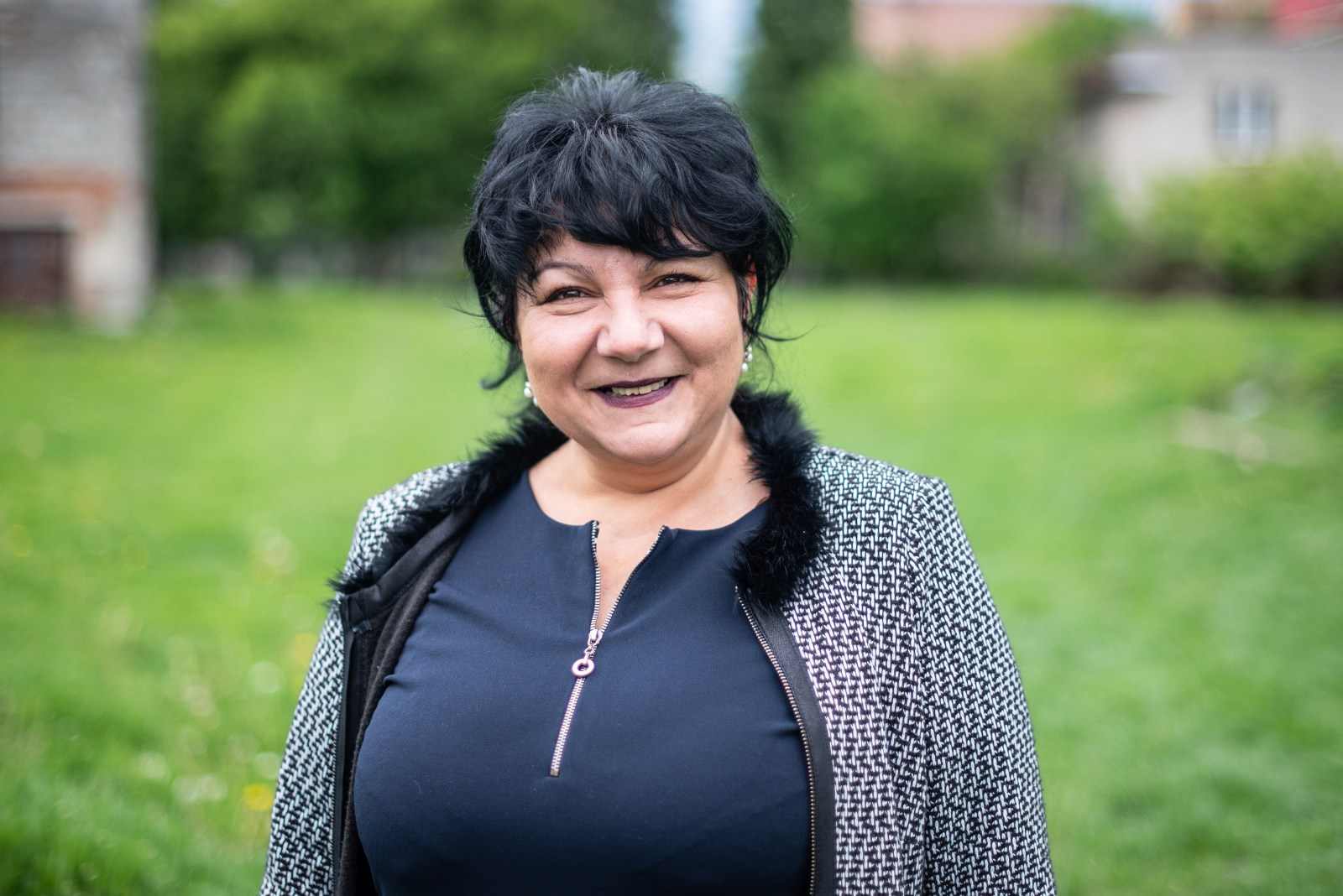
Eleanor Kulcsar, Director of the “Benefit” charity foundation: “Roma children are very smart and talented but it all depends on the society they live in”
In 2014, we launched a project aimed at pre-school preparation for the children of Roma communities in Uzhhorod, as well as courses of responsible paternity. We prepare to school studies children aged 6 but not attending kindergartens previously.
We have prepared 144 in total for the last 5 years. Out of these, 39 entered Ukrainian schools, 10 entered Hungarian schools and the rest entered segregated Roma schools. It is essential to mark that at the age of 6 kids come to us with no knowledge at all, and the program taught at kindergartens is delivered by us summed up during a 7-month’s time. Beginning from the behavior rules and finishing with all the necessary knowledge that a 6-year-old must have.
What I like most in my job is the kids’ smiles, their shining eyes and laughter and the great potential that I see in our Roma kids. Once you treat them with love and invest knowledge, they may become teachers, doctors, professors even. The kids are very smart and talented but it all depends on the society they live in. Surely, there will be no development if they look down at a child, even a 5-year-old one, say, “that’s a Roma, a gypsy”. But on the other hand, whatever nationality the kid is, still it’s just a child that needs loving attitude. Then the child will be willing to go forward.
As a child, I dreamt of becoming an archaeologist. And then there was a moment that I realized: I want to serve my people. Our organization started its work in 2003, beginning from humanitarian supplies. At that time we helped about 1000 people but then I realized: that’s just a bottomless abyss. Certainly, this kind of support is also needed. But to move further and advance it must be something different. Education is one of the most important aspects that our people lack. That’s why I started working in this direction.
The facility when given to the foundation
We are the only school of this type in Ukraine, although in other regions there are some first attempts. So far we are not talking of any results.
Being a Roma woman in Ukraine is both an honor and a problem at the same time. I am proud of being a Roma, working with my people. On the other hand, there are difficulties. But frankly speaking, I wouldn’t be able to cope with them, if not for the Almighty. I owe Him all I have and all I have reached. Even the problems I encounter – God helps me overcome them.
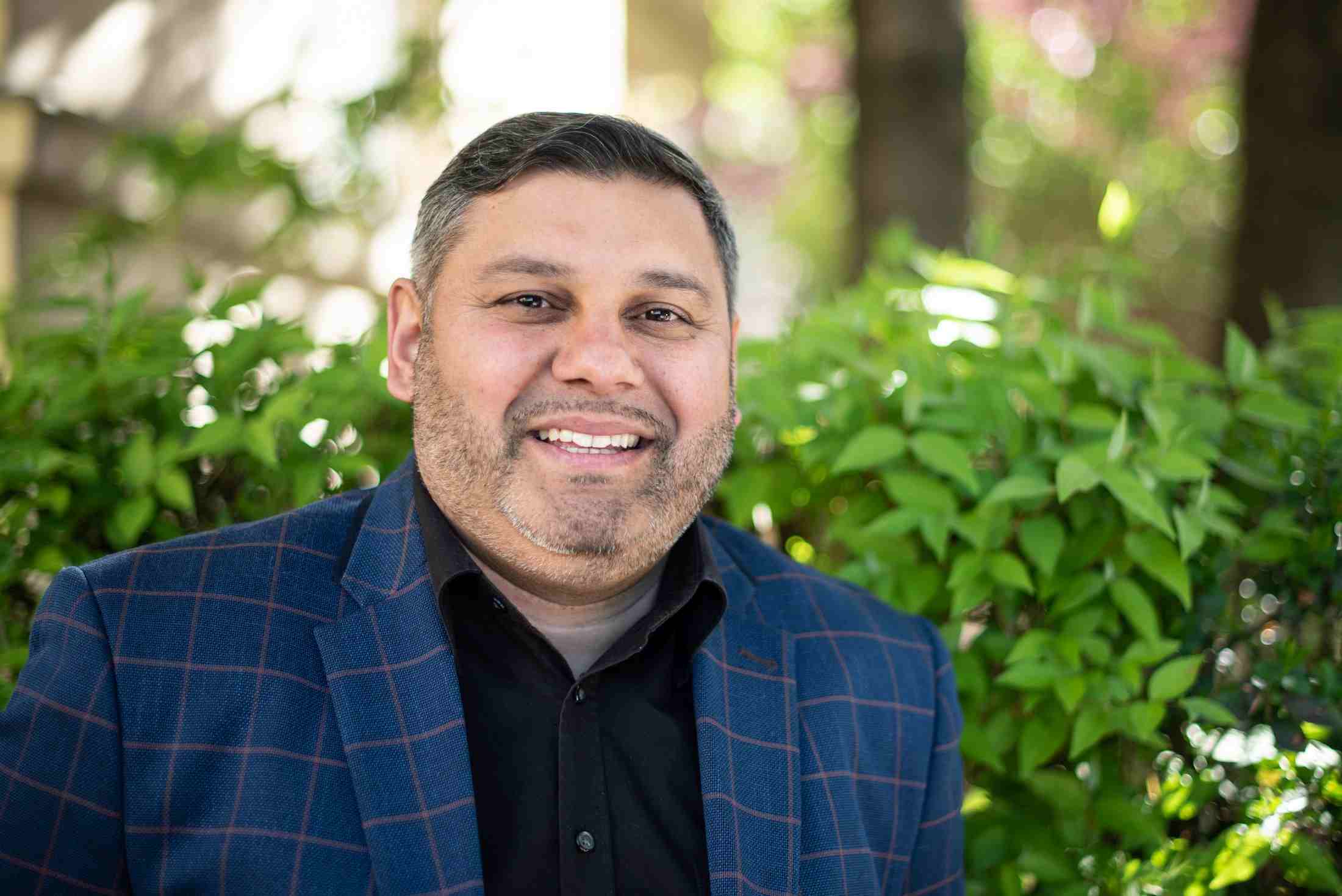
Myroslav Horvath, a lawyer, a deputy: “I am a Roma and a true Ukrainian”
My greatest dream as a child was to travel around the world. For me, it is still actual, though it is partially fulfilled now.
A key to success, to my mind, is self-belief. That’s the point. If you don’t believe in yourself, leave the matter.
For me most important is to stay myself. And who am I? I’m a Roma but a true Ukrainian as well. Should I want to leave the country, I would have done it long ago, for I had such opportunities. But I want to dwell here and fight for the living standards that I want for my children to have in this country.
I believe that we will overcome the problematic issues and difficulties. Only by uniting into a civic society, without splitting into national minorities, into people going to a different church and by the color of the skin, then only we are going to build up a new civic society. I’d love to see Roma in it, for we are an integral part of it.
I began my career in the newspaper “Romani Yag”. They had strong professional journalists, great leaders, a Chief Editor, layers. They all suggested I should lead the way. This is really most important to me.
In 2012, I entered the university, and that was a great step forward to me. At that time I already was a father and my studies took me 7 years to complete. Then I got another education degree by a different speciality. Now I am a postgraduate, a Ph.D. Still don’t know which way to choose in future but I am thankful to the people that guided me. They have indeed played a very important role in my life. And those were not only Roma.
My children are students at a university. My friends’ children, too. We give the best of ourselves for the Roma young people to change their lives. This is the only way for the Roma community. The stereotype that still exists about the Roma in the society has nothing to do with us. We try to form a different opinion. Today we have lots of children as school graduates and about 50 Roma as students in higher educational establishments. There are young people ready to work as officials in state offices.
Roma of Transcarpathia are one of the most numerous communities in the territory of Ukraine. We are all very different, even within a single region but there something uniting us all: the Roma blood, culture and traditions. Wherever I go, these will all remain.
Disclaimer: the present material is presented by the civic community of “Institute of Central European Strategy” with the support by US Agency for International Development (USAID). Creating the material became possible with sincere support from the American people as provided via US Agency for International Development (USAID). The contents or the material is a sole responsibility of the civic community of “Institute of Central European Strategy” and does not necessarily reflect opinion of USAID or USA government. Reproduction and use of any part of this material in any format, including graphical, electronic, copying or using in any other way whatsoever is prohibited without a link to the original source.
